Vertical gardens offer a brilliant solution for bringing lush greenery and fresh produce into compact living areas. By utilizing upward space, these innovative gardening methods can transform a barren wall, a tiny balcony, or a small patio into a vibrant, living ecosystem. Whether you are an experienced gardener or a beginner, vertical systems are adaptable, space-efficient, and aesthetically pleasing. From simple DIY projects using recycled materials to sophisticated modular setups, there is a vertical garden idea to suit every style, budget, and space constraint, making it possible for anyone to enjoy the benefits of gardening, regardless of their square footage.
1. Wall-Mounted Pocket Planter Vertical Garden
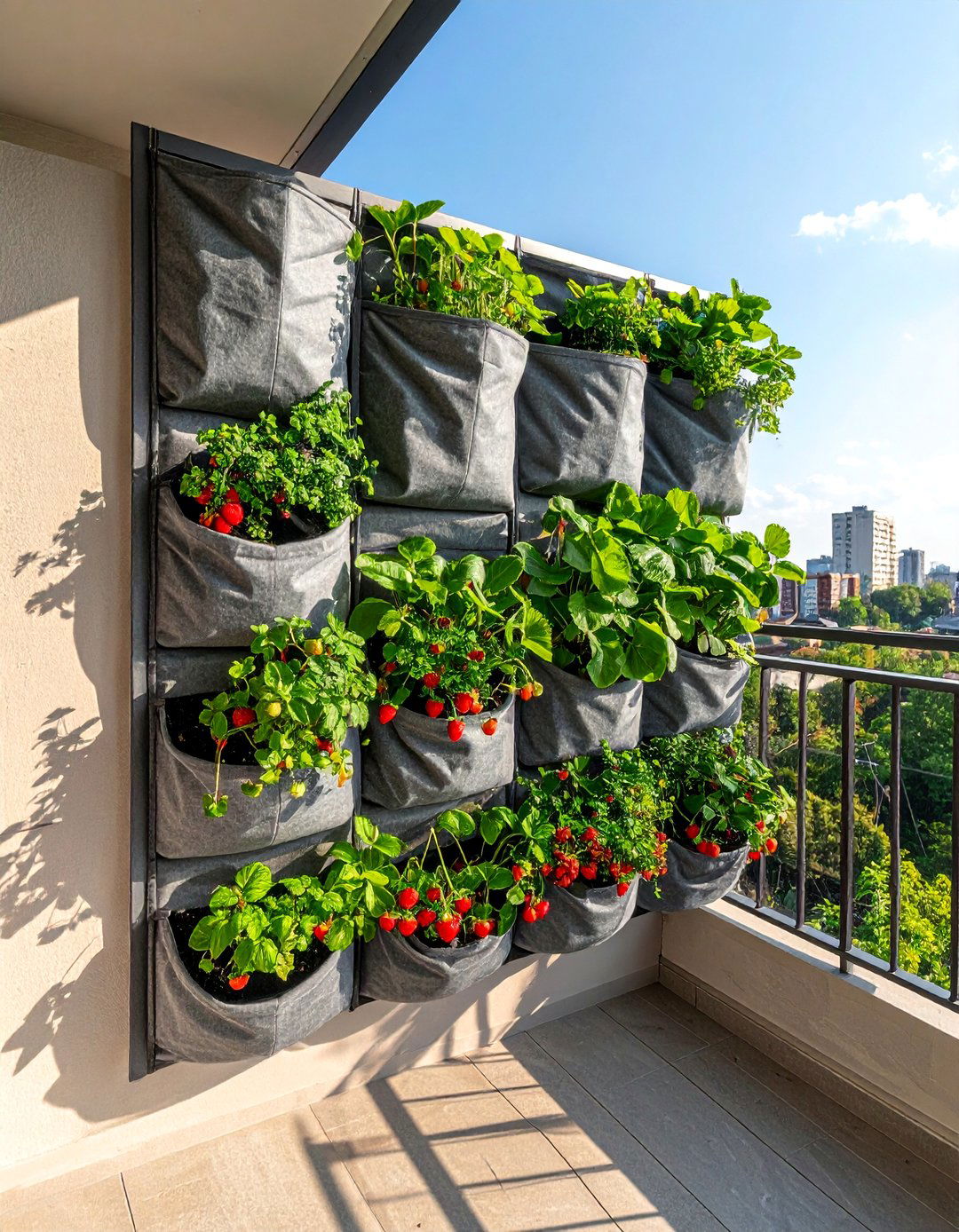
A fabric pocket planter system is one of the most straightforward ways to create an instant living wall. These planters, typically made from felt or other durable, breathable fabrics, are designed with multiple pouches to hold individual plants. To create this vertical garden, simply mount the fabric panel to a sunny wall on a balcony, patio, or even indoors. The material retains moisture while allowing for proper drainage, making it ideal for a variety of plants, including herbs, lettuces, strawberries, and colorful annual flowers. This approach is perfect for beginners as it requires minimal construction and provides an immediate, lush visual impact.
2. Repurposed Pallet Vertical Garden
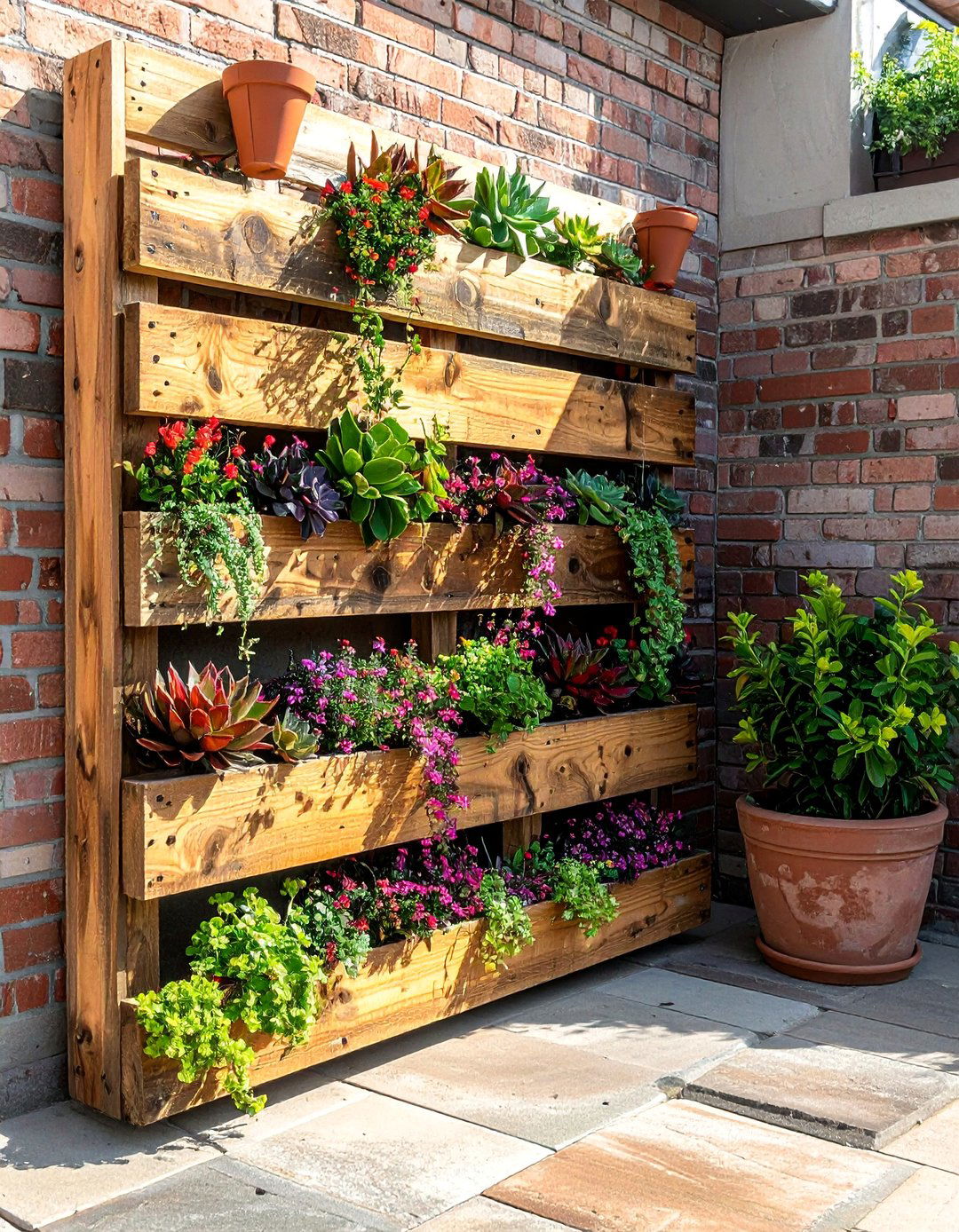
Transforming a wooden shipping pallet into a thriving vertical garden is a popular and budget-friendly DIY project. To begin, sand the pallet to remove splinters and consider painting or staining it for a more polished look. Staple landscape fabric to the inside of the front, bottom, and back slats, creating pockets to hold soil. Once filled with potting mix, the pallet can be planted with a variety of shallow-rooted plants like herbs, succulents, or trailing flowers. Lean it against a sturdy wall or mount it securely, providing an excellent rustic and functional feature for any small outdoor space.
3. Hanging Gutter Vertical Garden
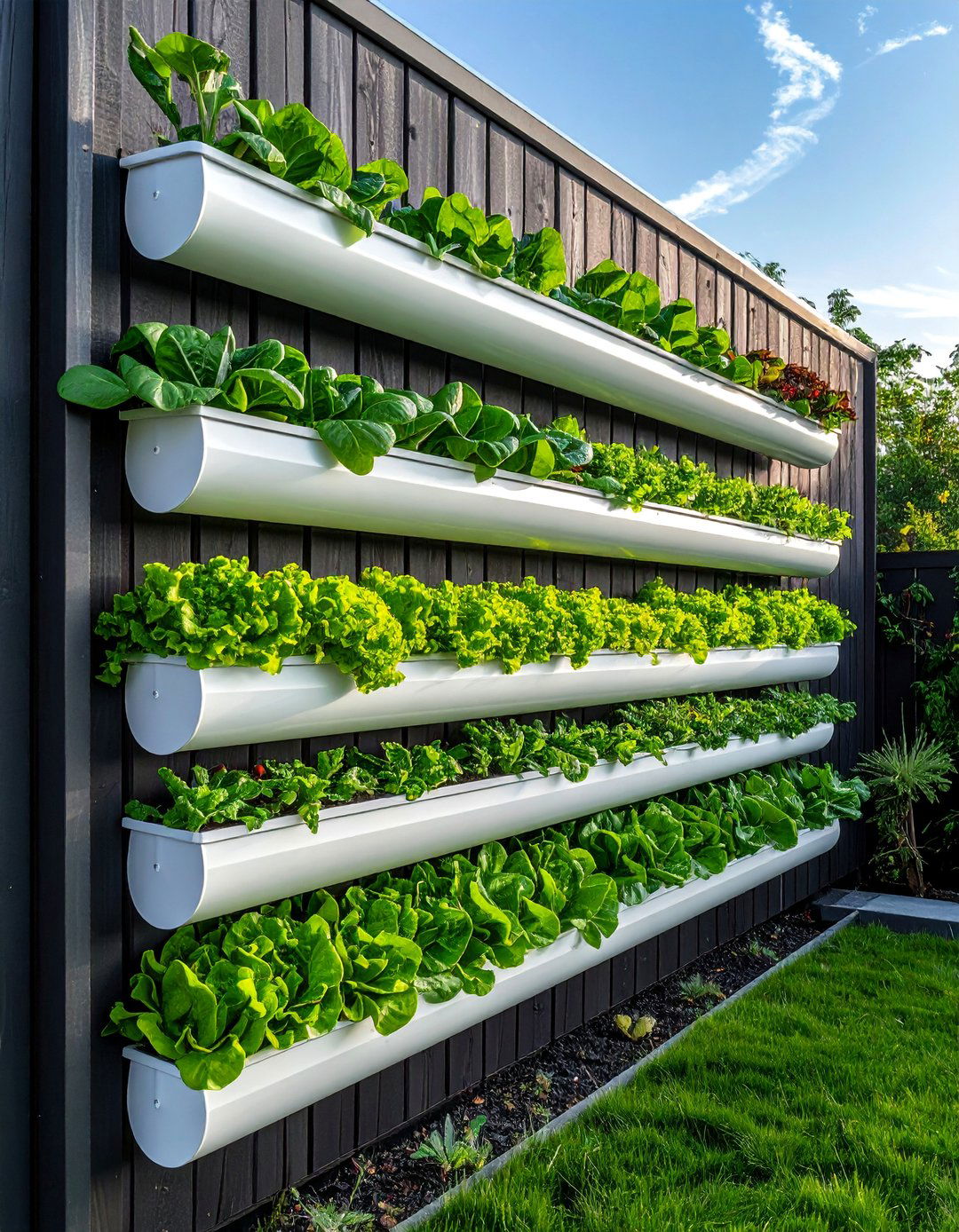
For a sleek, linear aesthetic, consider using repurposed rain gutters to create a horizontal-style vertical garden. Mount sections of gutters in stacked rows along a wall or fence, ensuring you drill drainage holes along the bottom of each piece. This setup is particularly effective for growing shallow-rooted plants such as lettuce, spinach, strawberries, and various herbs. The shallow depth of the gutters provides just enough soil for these plants to thrive. Painting the gutters a vibrant color can also add a playful and modern design element to your balcony or patio, making it both productive and stylish.
4. DIY Mason Jar Herb Vertical Garden
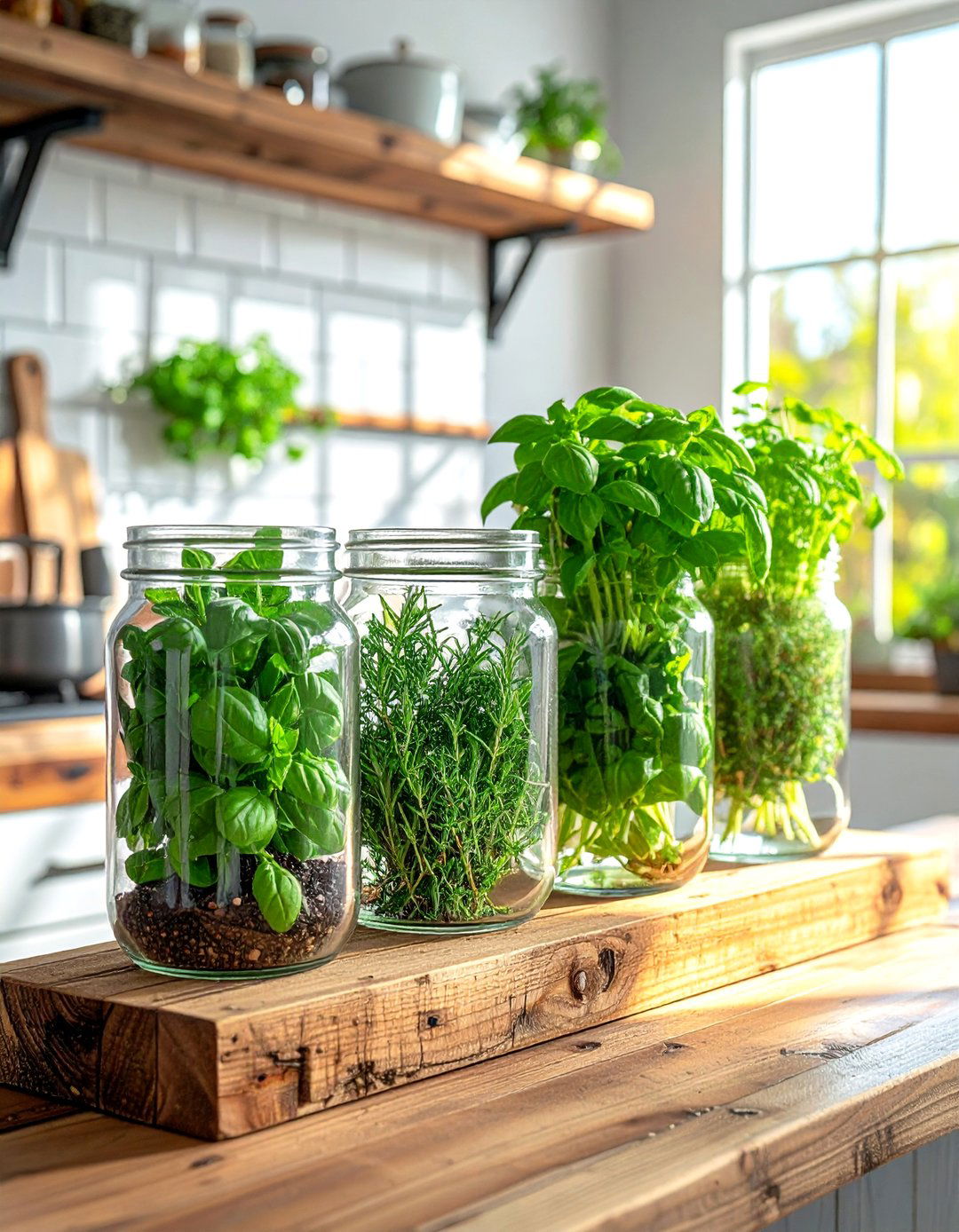
A Mason jar vertical garden brings a touch of rustic charm to any small space, especially a kitchen. To create one, affix several Mason jars to a piece of reclaimed wood or a sturdy board using pipe clamps. You can then mount the entire unit onto a wall near a sunny window. Fill the bottom of each jar with a layer of pebbles for drainage before adding soil and planting your favorite herbs like basil, mint, parsley, or rosemary. This not only keeps fresh herbs within arm's reach for cooking but also serves as a beautiful piece of living decor.
5. Trellis and Vine Vertical Garden
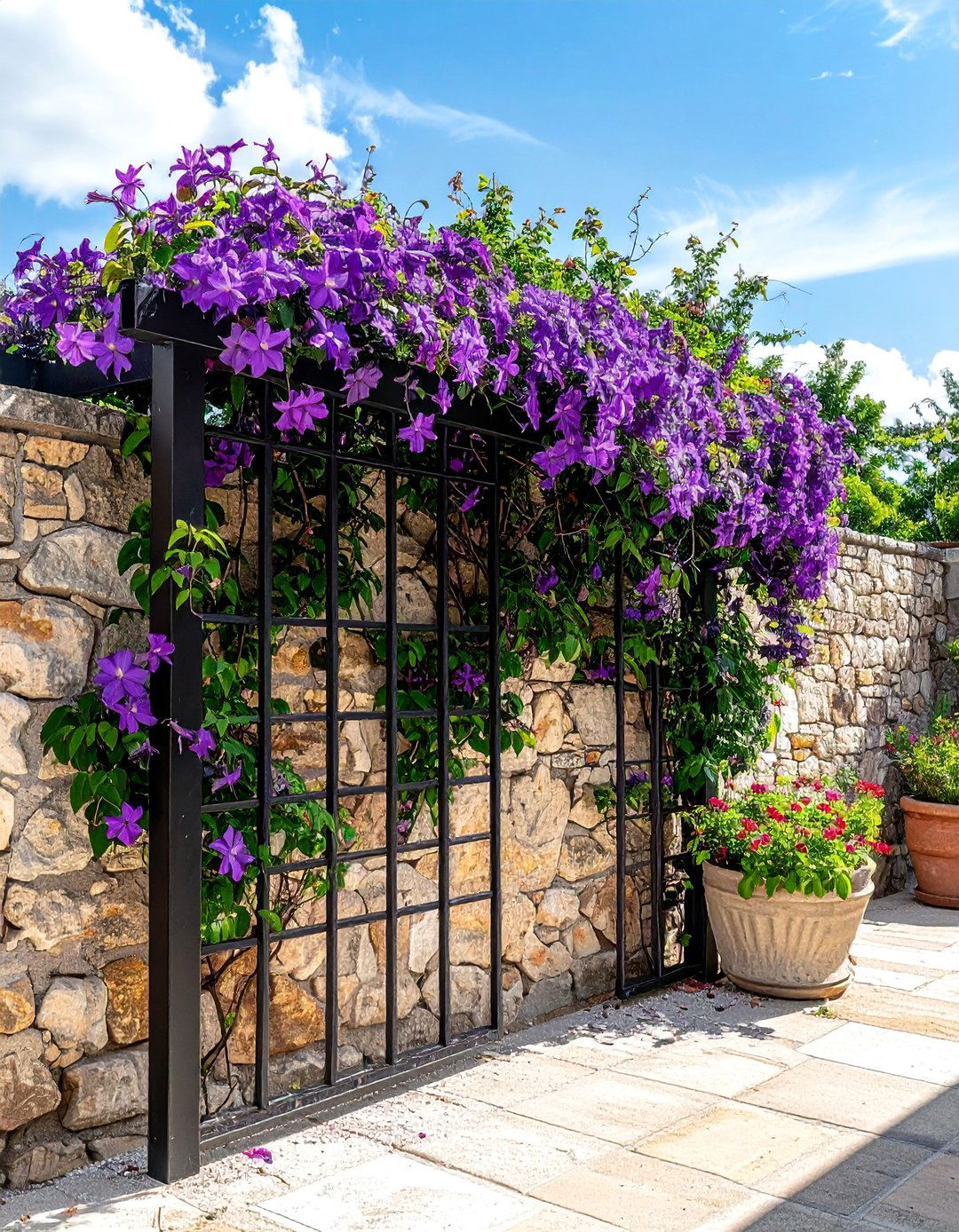
A simple trellis is a classic and highly effective tool for vertical gardening in constrained areas. Install a wooden or metal trellis against a wall or as a freestanding screen on your balcony. This structure provides essential support for climbing plants, allowing them to grow upwards instead of outwards. Consider planting flowering vines like clematis or jasmine for beautiful blooms and fragrance, or choose edible options such as climbing beans, peas, or cucumbers. A trellis not only maximizes your growing space but also adds a layer of privacy and a stunning green backdrop to your outdoor area.
6. Stacked Planter Tower Vertical Garden
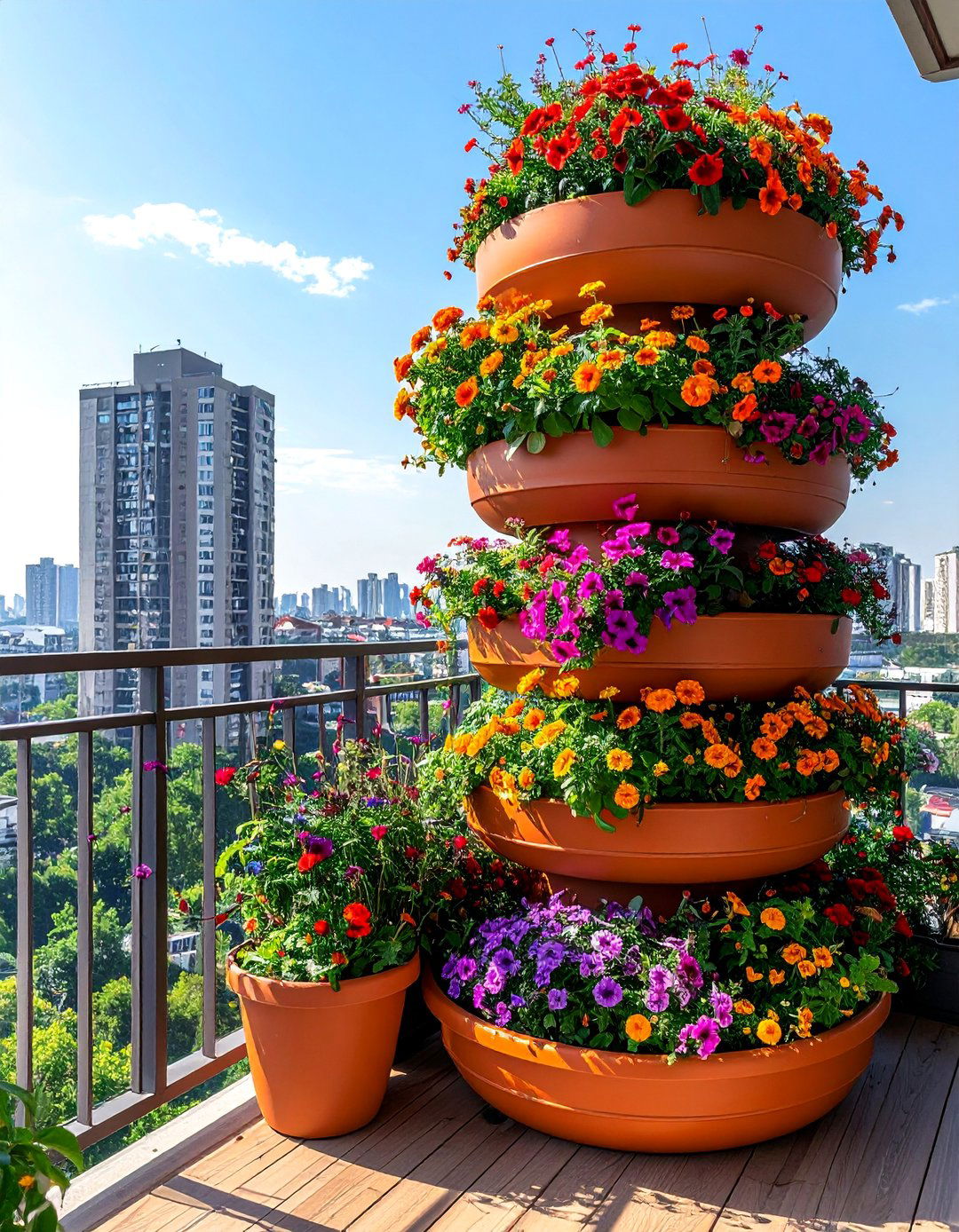
Stacked planter towers offer a freestanding vertical garden solution that is both space-efficient and visually interesting. These systems consist of individual pots that stack directly on top of one another, often in a slightly offset or spiraling configuration. Each tier provides ample room for planting, making them perfect for creating a compact herb garden, a strawberry patch, or a vibrant column of flowers. Because they are self-contained, these towers can be placed anywhere that receives adequate sunlight, such as a small patio corner or a sunny balcony, without needing a wall for support.
7. A-Frame Ladder Vertical Garden
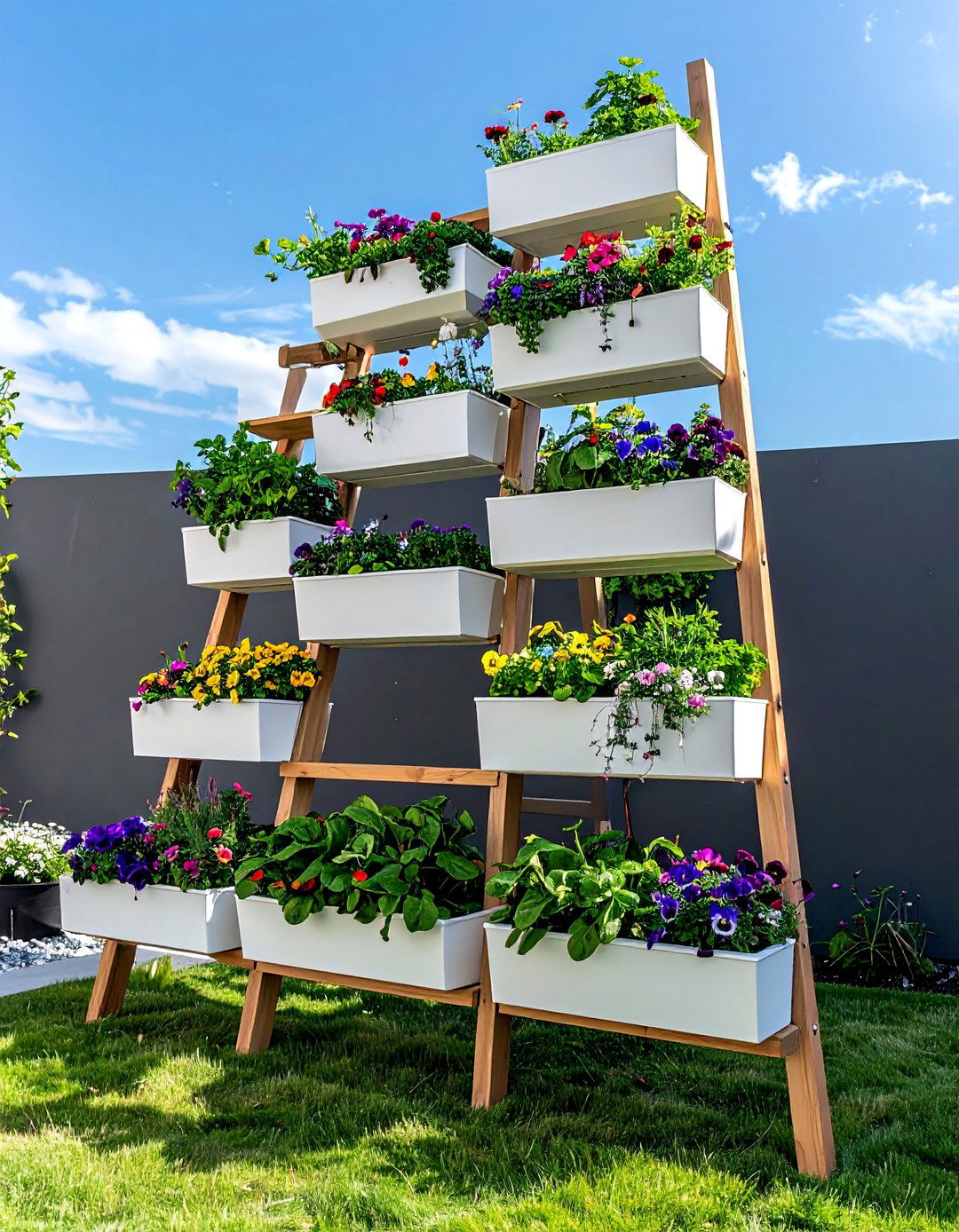
An A-frame or stepladder-style planter provides a stable, freestanding structure for a multi-level vertical garden. This design allows you to place pots or planter boxes on each step, ensuring every plant receives plenty of sunlight and air circulation. You can use an old wooden stepladder for a rustic, vintage feel or build a custom A-frame structure to fit your specific space. This type of vertical garden is ideal for displaying a variety of plants, from cascading flowers on the top rungs to sun-loving herbs on the bottom, creating a diverse and dynamic green display.
8. PVC Pipe Strawberry Tower Vertical Garden
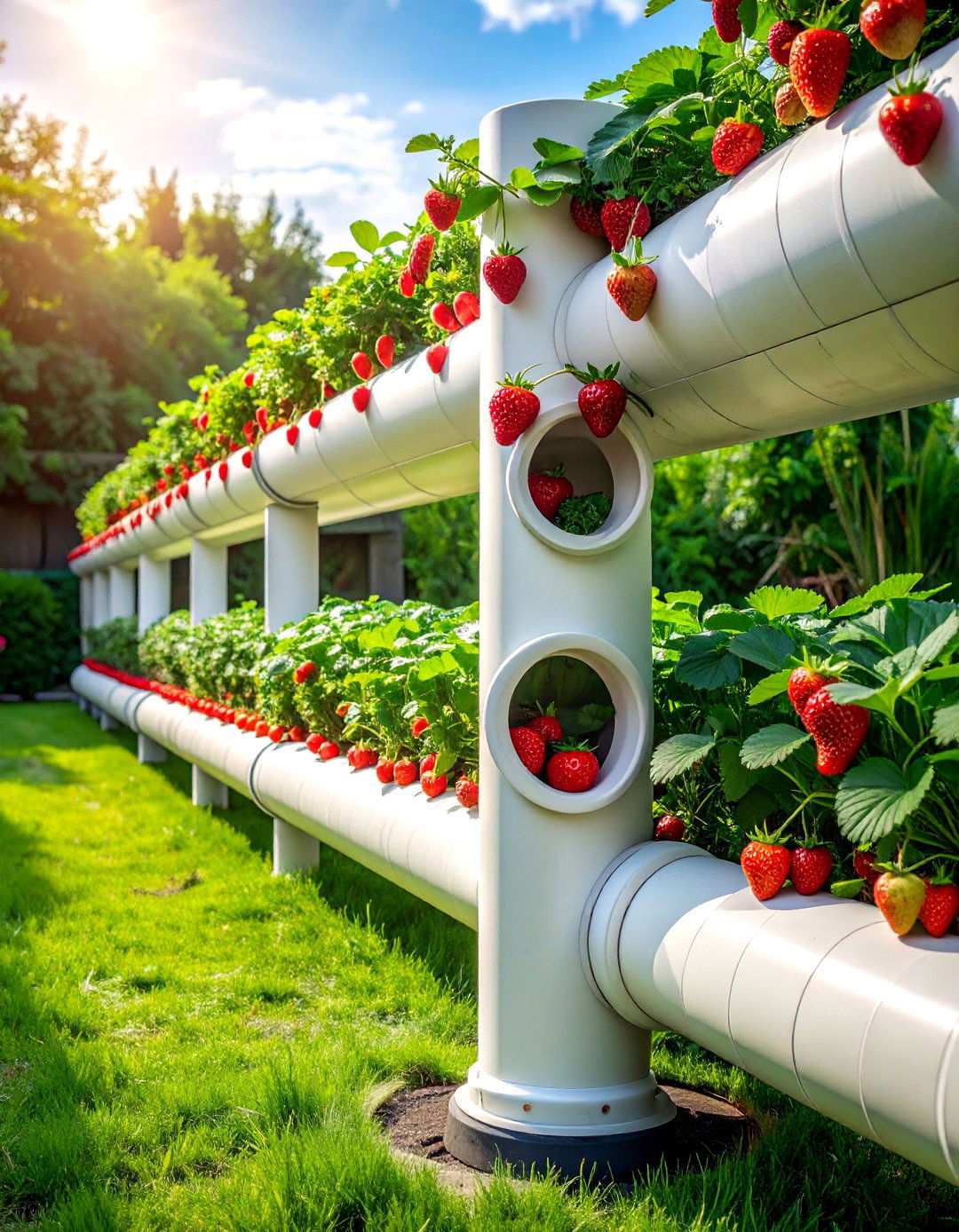
A PVC pipe tower is an ingenious and highly productive vertical garden, especially for growing strawberries or leafy greens. To make one, take a wide-diameter PVC pipe and drill large holes at intervals down its sides. Stand the pipe upright in a large pot or secure it in the ground, then fill it with high-quality potting soil. Seedlings can be planted directly into the holes along the sides. A smaller, perforated pipe can be placed in the center for easy, efficient watering. This method maximizes yield in a minimal footprint, perfect for urban gardeners with limited ground space.
9. Cinder Block Vertical Garden
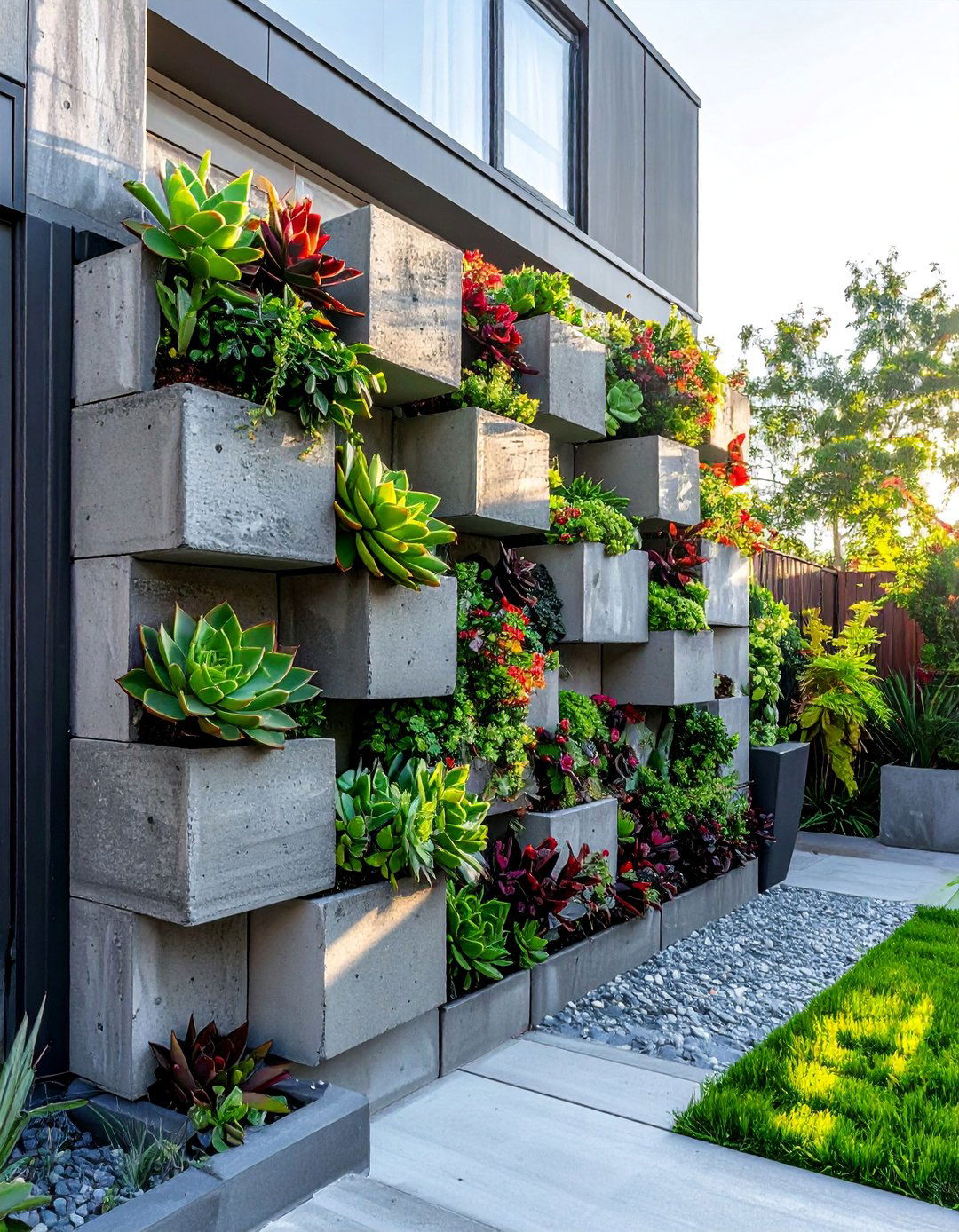
Cinder blocks offer a modular, industrial-chic approach to building a vertical garden. Simply stack the blocks in a staggered arrangement to create a sturdy wall with built-in planting pockets. The holes in the blocks are the perfect size for holding soil and individual plants. This type of garden is exceptionally durable and works well for growing succulents, herbs, and other small plants that thrive in well-drained conditions. You can customize the height and width of your cinder block wall to perfectly fit your patio or backyard corner, adding both greenery and a unique structural element.
10. Living Wall Art Frame Vertical Garden
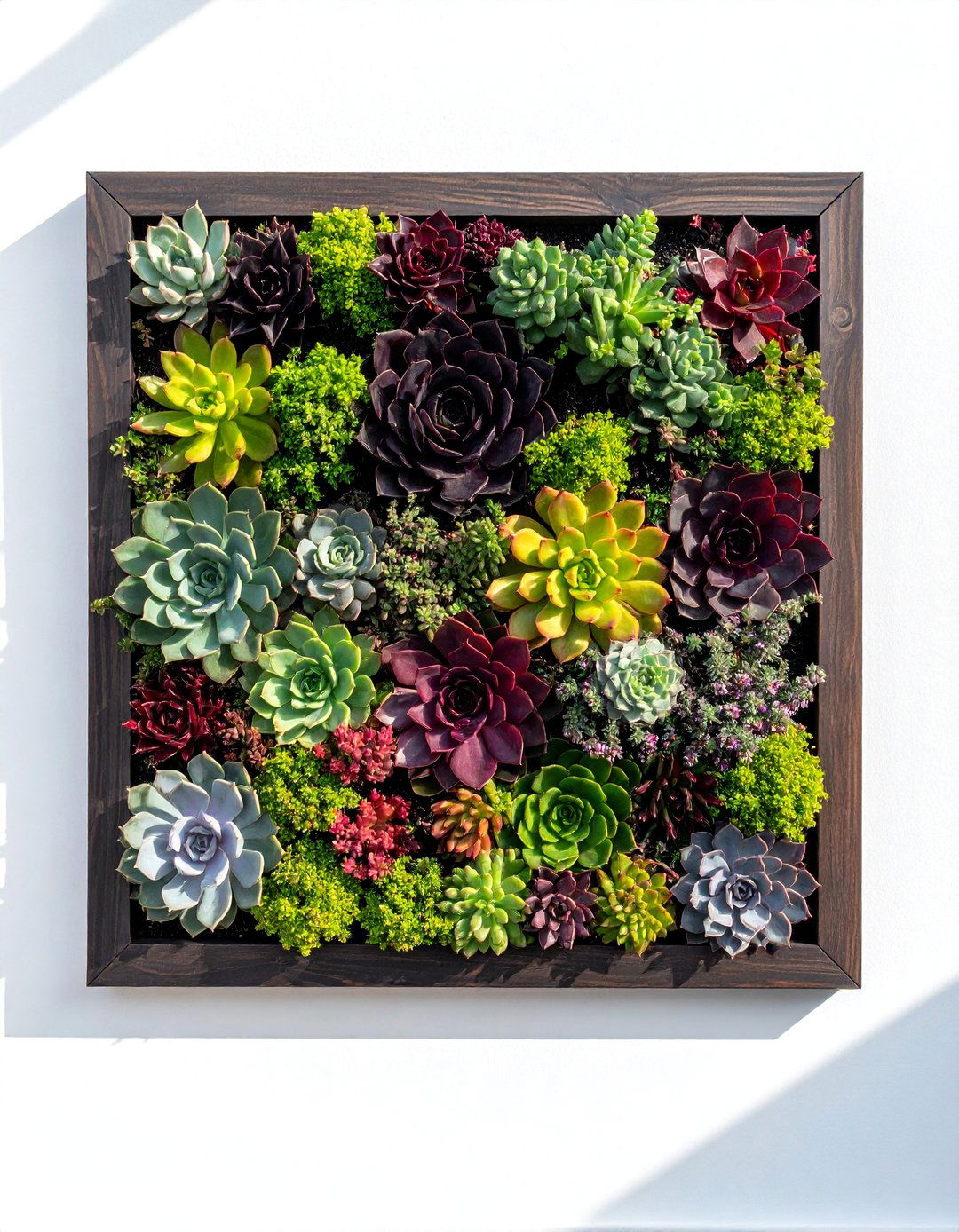
Create a stunning piece of living art by building a framed vertical garden. Construct a shallow wooden box, similar to a shadow box, and attach a wire mesh screen to the front. Fill the box with a succulent-specific soil mix, then plant small succulent cuttings directly through the mesh. The mesh will hold the soil and plants in place. Once the succulents have rooted, you can hang the frame on a sunny wall. This creates a breathtaking, low-maintenance display that blurs the line between gardening and art, making it a perfect statement piece for a modern patio.
11. Hanging Coconut Coir Liner Vertical Garden
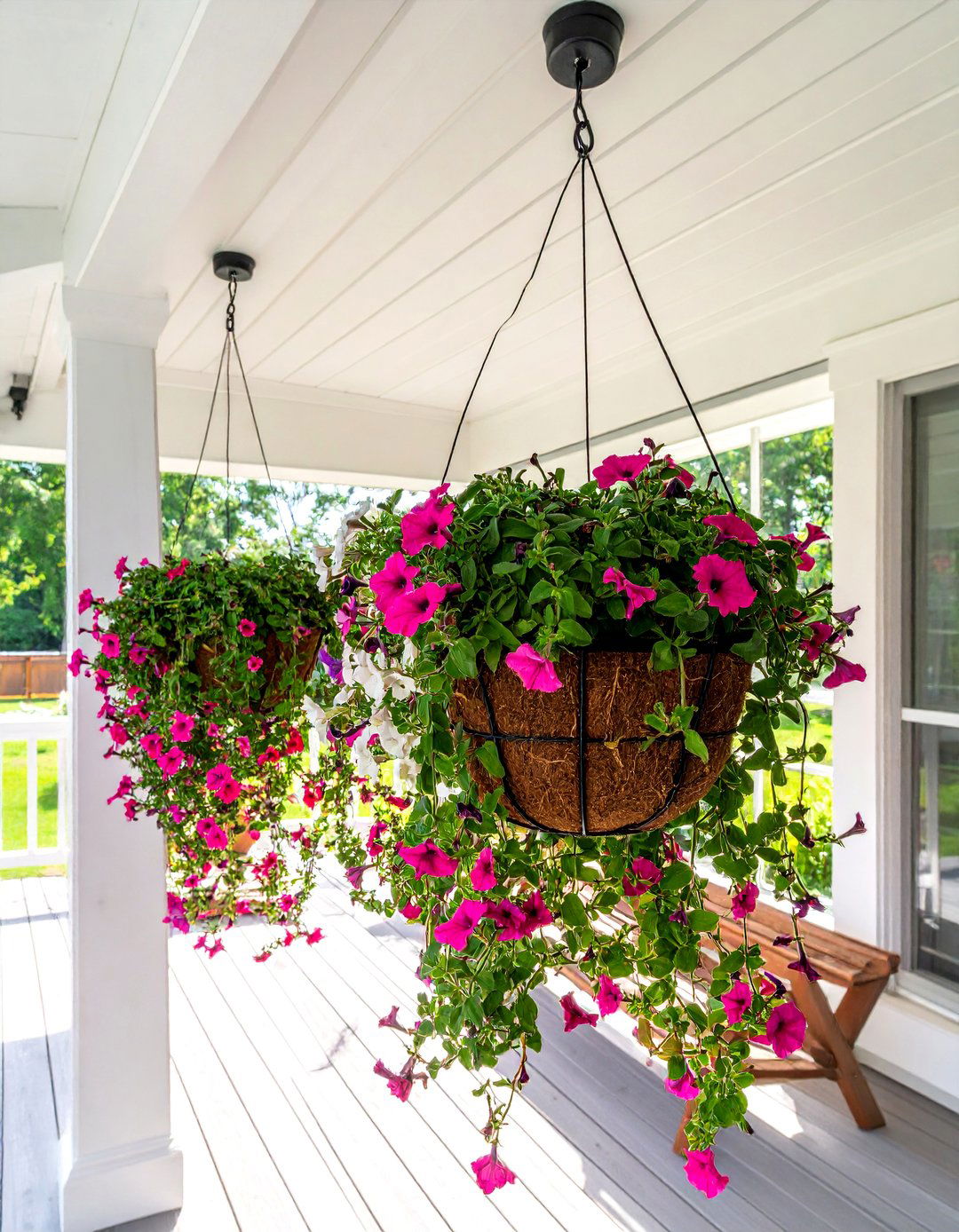
Hanging planters made with coconut coir liners provide an excellent medium for a cascading vertical garden. These liners are often used in wire baskets or wall-mounted frames and are prized for their excellent drainage and aeration properties. Plant trailing flowers like petunias or verbena, or edibles like cherry tomatoes and strawberries, allowing them to spill over the sides. By hanging these planters at different heights from an awning or a sturdy wall bracket, you can create a multi-layered display of color and texture that draws the eye upward and makes the most of your available vertical space.
12. Repurposed Shoe Organizer Vertical Garden
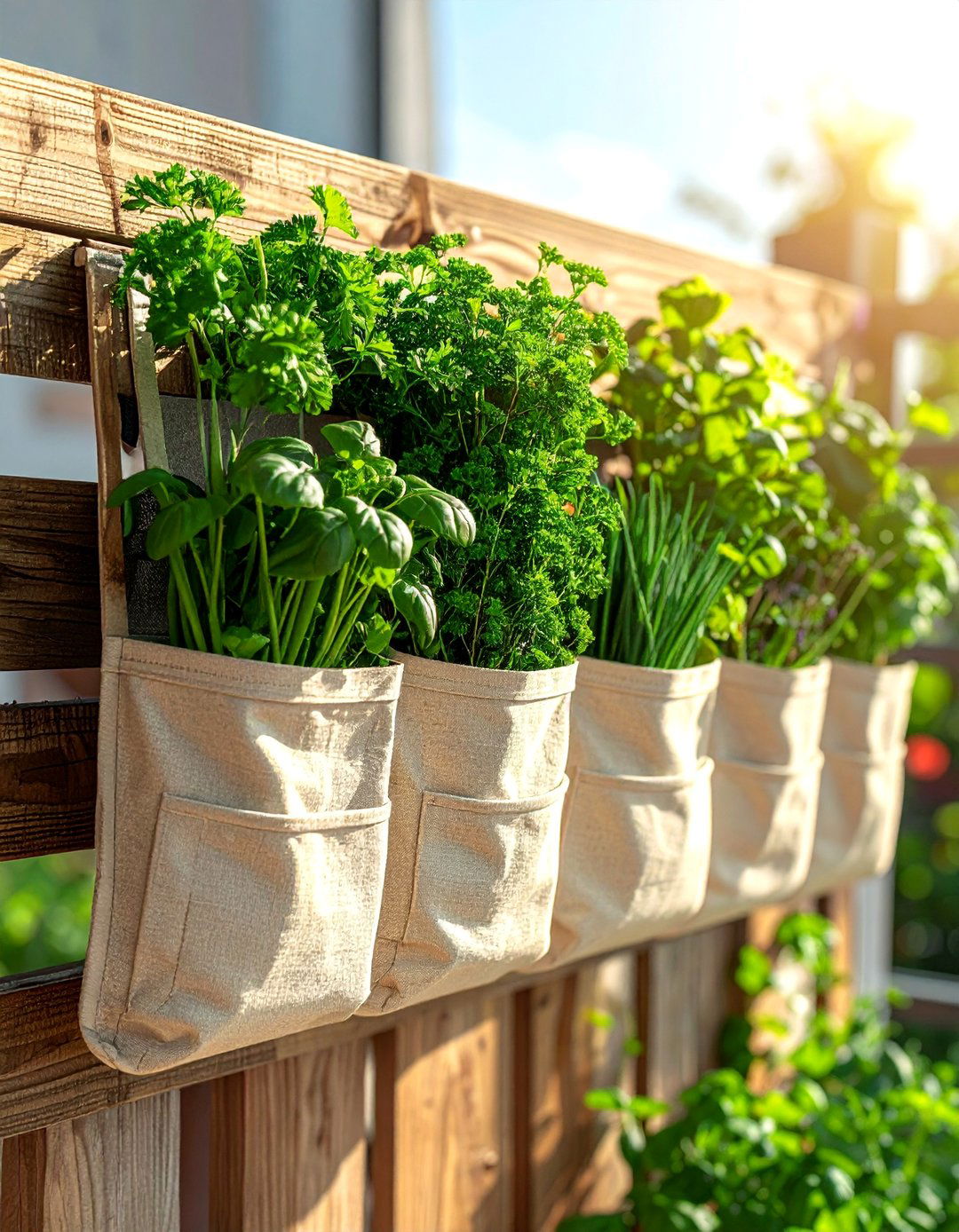
A hanging shoe organizer, typically made of canvas or plastic, can be cleverly repurposed into an instant vertical garden. The multiple pockets are perfectly sized for holding soil and small plants. Simply hang the organizer on a sunny wall or fence and fill each pocket with a lightweight potting mix. This is an ideal setup for a compact herb garden or for growing leafy greens like lettuce and spinach. Ensure the material allows for some drainage, or carefully poke small holes in the bottom of each pocket to prevent waterlogging. It’s a simple, affordable, and effective solution.
13. Freestanding Modular Panel Vertical Garden
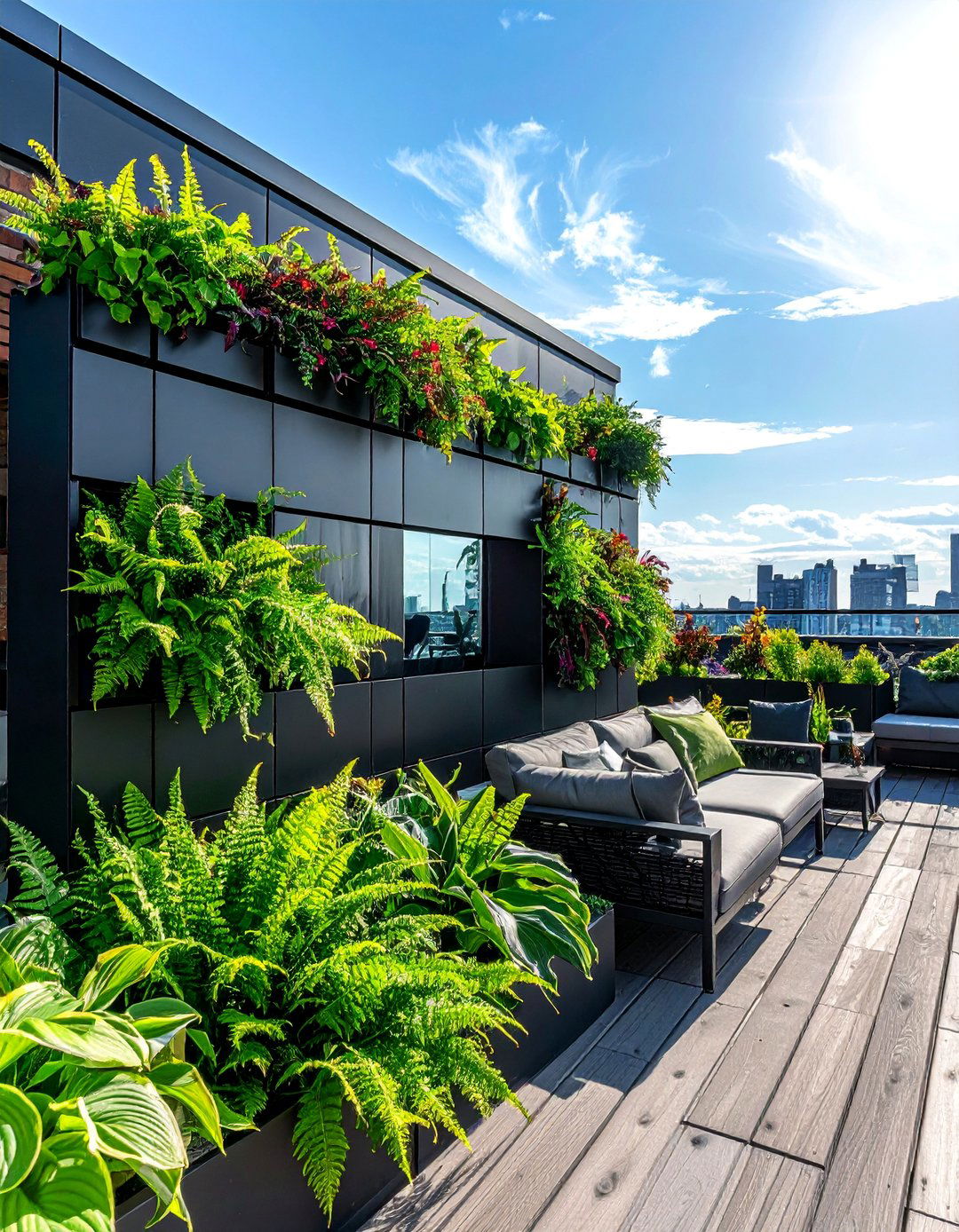
For a modern and customizable approach, consider a freestanding modular panel system. These vertical gardens consist of interlocking panels that have integrated planting cells or slots for pots. You can assemble them to a desired height and width, creating a living screen or a green wall that can be placed anywhere. These systems are often self-watering, with built-in irrigation that simplifies plant care. They are perfect for creating privacy on a balcony or for dividing a larger patio area, offering a sleek and highly functional way to incorporate a significant amount of greenery into your small space.
14. Tiered Wooden Planter Box Vertical Garden
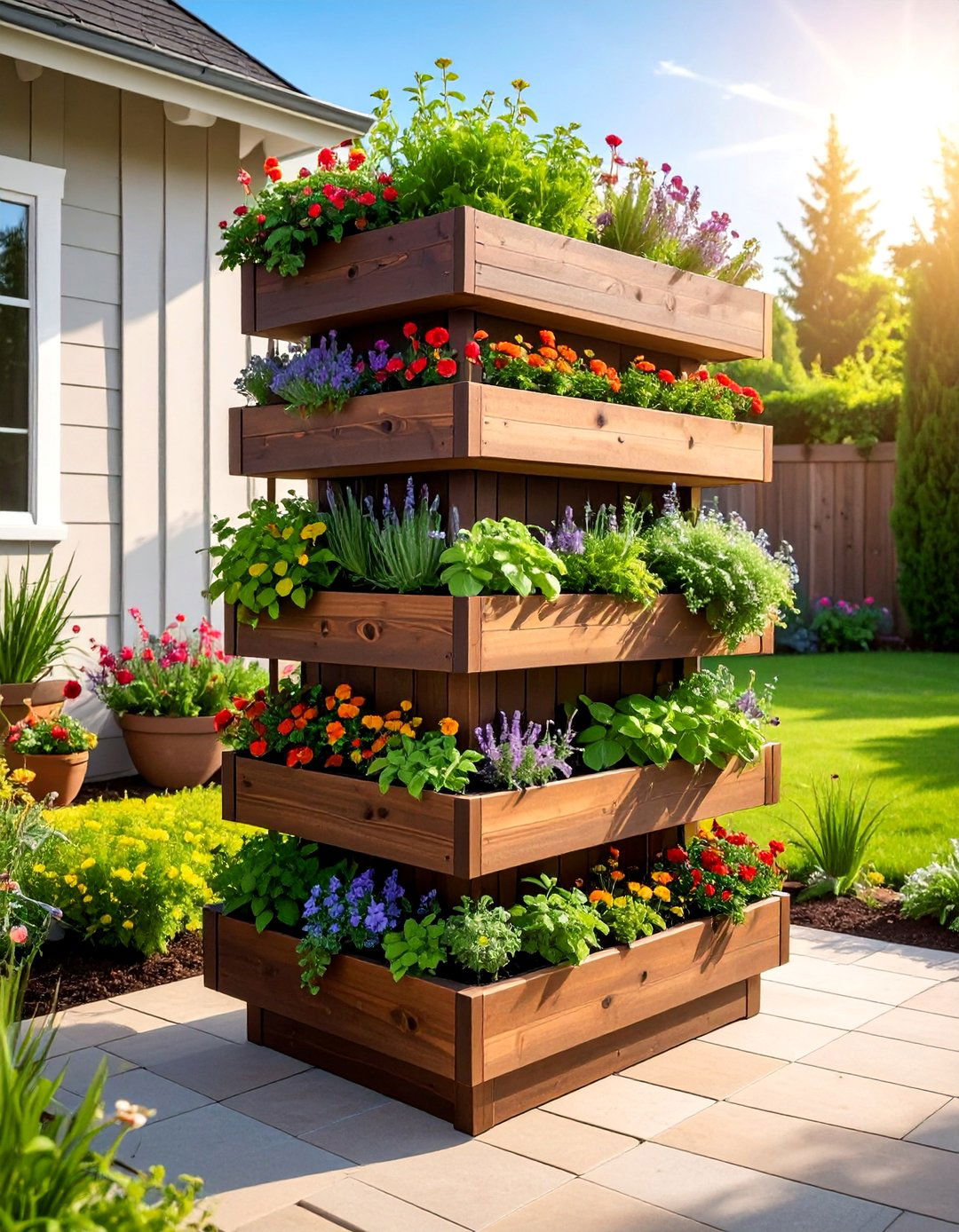
A tiered wooden planter box offers a classic and attractive way to create a vertical garden. This design typically features three or more planter boxes of decreasing size stacked to form a pyramid-like structure. This tiered arrangement ensures that all plants receive adequate sunlight and makes watering simple. It provides different soil depths, making it suitable for a wide range of plants, from deep-rooted vegetables in the bottom tier to shallow-rooted herbs and flowers at the top. This type of planter adds a touch of rustic elegance to any patio or balcony while maximizing growing capacity.
15. Metal Grid Panel Vertical Garden
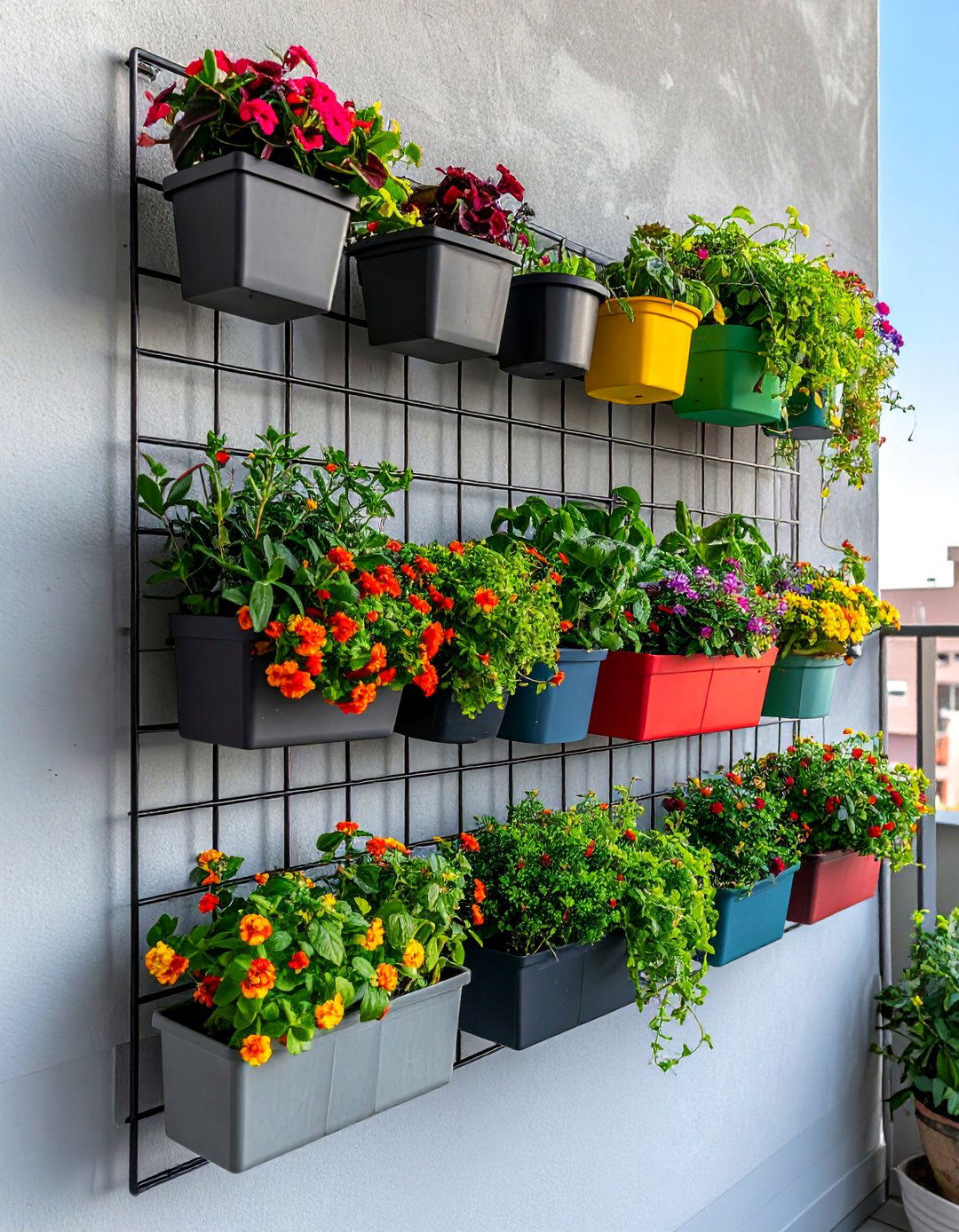
A metal grid or wire mesh panel provides a versatile and industrial-style framework for a vertical garden. Secure the panel to a wall or fence, and then use S-hooks to hang individual pots or small planters. This allows for complete customization, as you can easily rearrange the pots to change the look or accommodate plant growth. The open structure ensures excellent air circulation around the plants, which helps prevent disease. It’s an ideal system for showcasing a collection of different plants, such as herbs, succulents, or small flowering annuals, creating a dynamic and easily adaptable display.
16. Recycled Plastic Bottle Vertical Garden
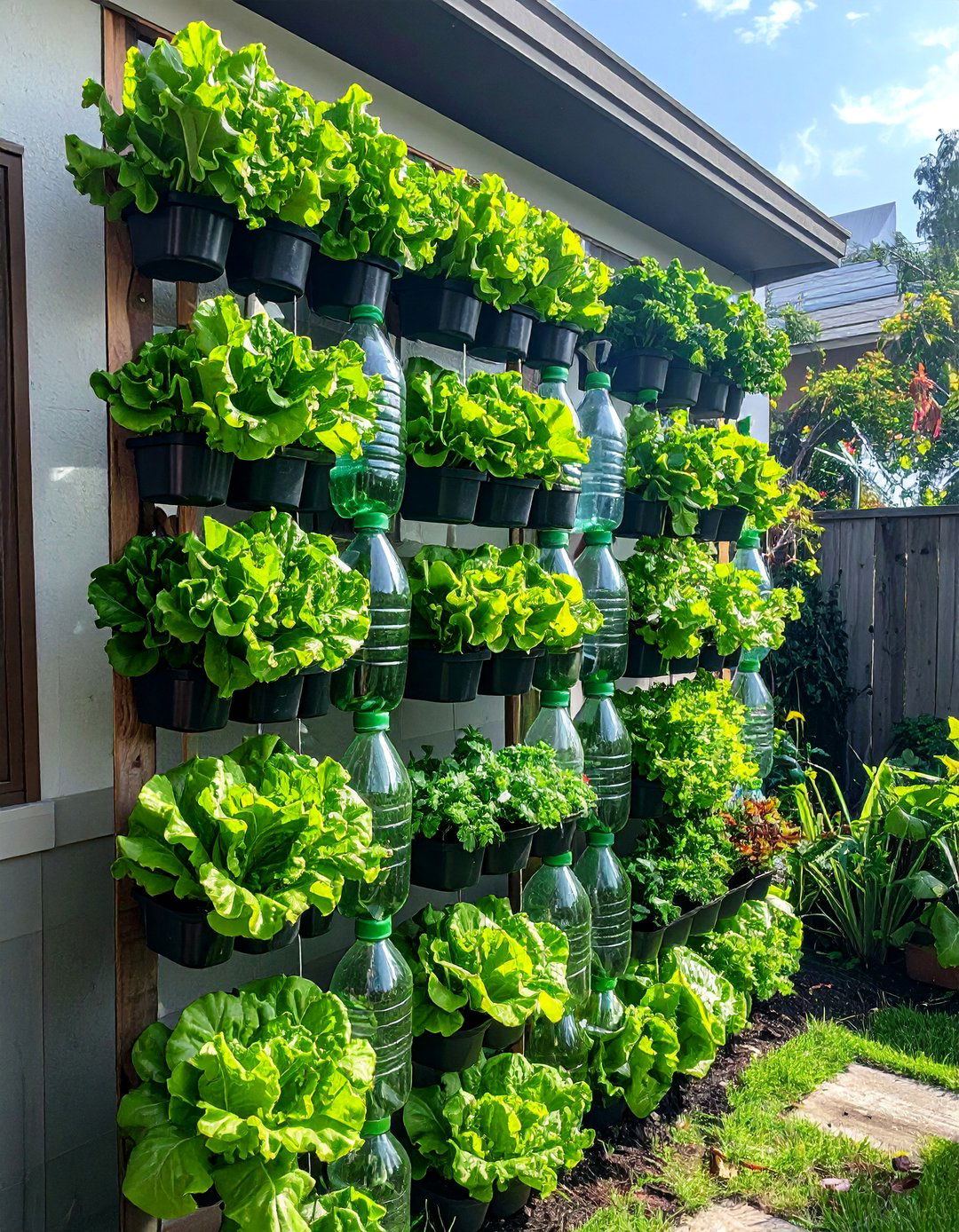
Creating a vertical garden from recycled plastic bottles is an eco-friendly and incredibly cost-effective project. To start, cut an opening in the side of each bottle to create a planting container. You can then string the bottles together vertically using durable twine or wire, creating long hanging chains of planters. Alternatively, you can attach them individually to a wall or fence. This method is surprisingly effective for growing herbs, small flowers, and leafy greens. It’s a fantastic way to teach children about recycling and gardening while adding a unique, handmade touch to your outdoor space.
17. Bamboo Pole Trellis Vertical Garden
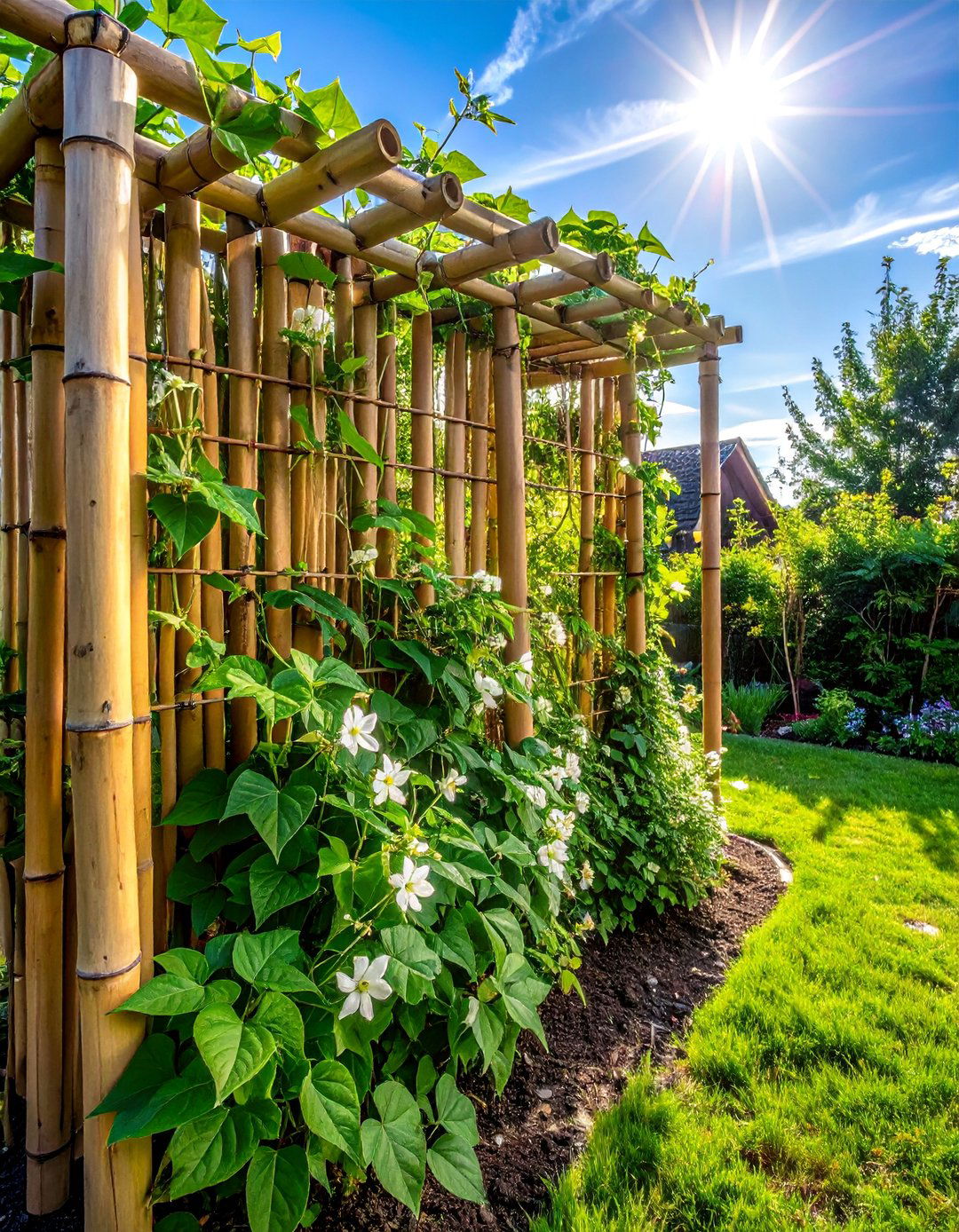
For a natural and organic-looking support structure, build a vertical garden trellis using bamboo poles. Lash the poles together with twine to create a simple ladder-like structure or a more complex grid or fan shape. Bamboo is lightweight, strong, and weather-resistant, making it an excellent material for this purpose. Plant climbing vegetables like peas and beans or flowering vines at the base and train them to grow up the poles. This type of trellis integrates beautifully into a garden setting, providing a functional and aesthetically pleasing way to grow vertically in a small footprint.
18. Hanging Kokedama Vertical Garden
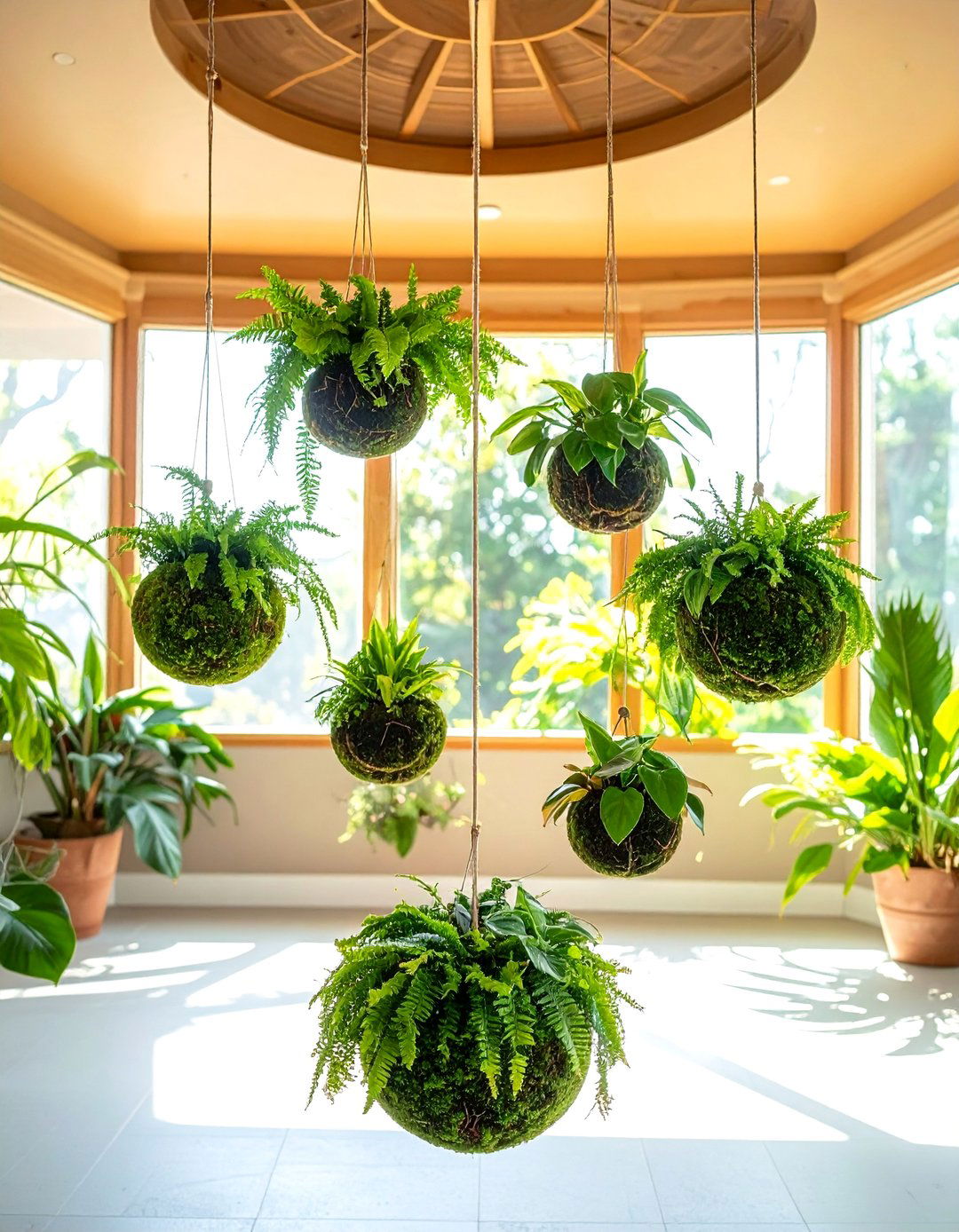
Kokedama, a Japanese gardening art form, involves creating a moss ball that encases a plant's roots. These beautiful, self-contained plant orbs can be hung with string to create a stunning and unique floating vertical garden. Group several kokedama together at varying heights to create a dramatic and artistic display in a corner of your room or on a sheltered balcony. They are best suited for plants that prefer their roots to be slightly moist, such as ferns, pothos, and philodendrons. This method elevates plants into living sculptures, adding a touch of serene, natural beauty.
19. Pegboard Planter Wall Vertical Garden
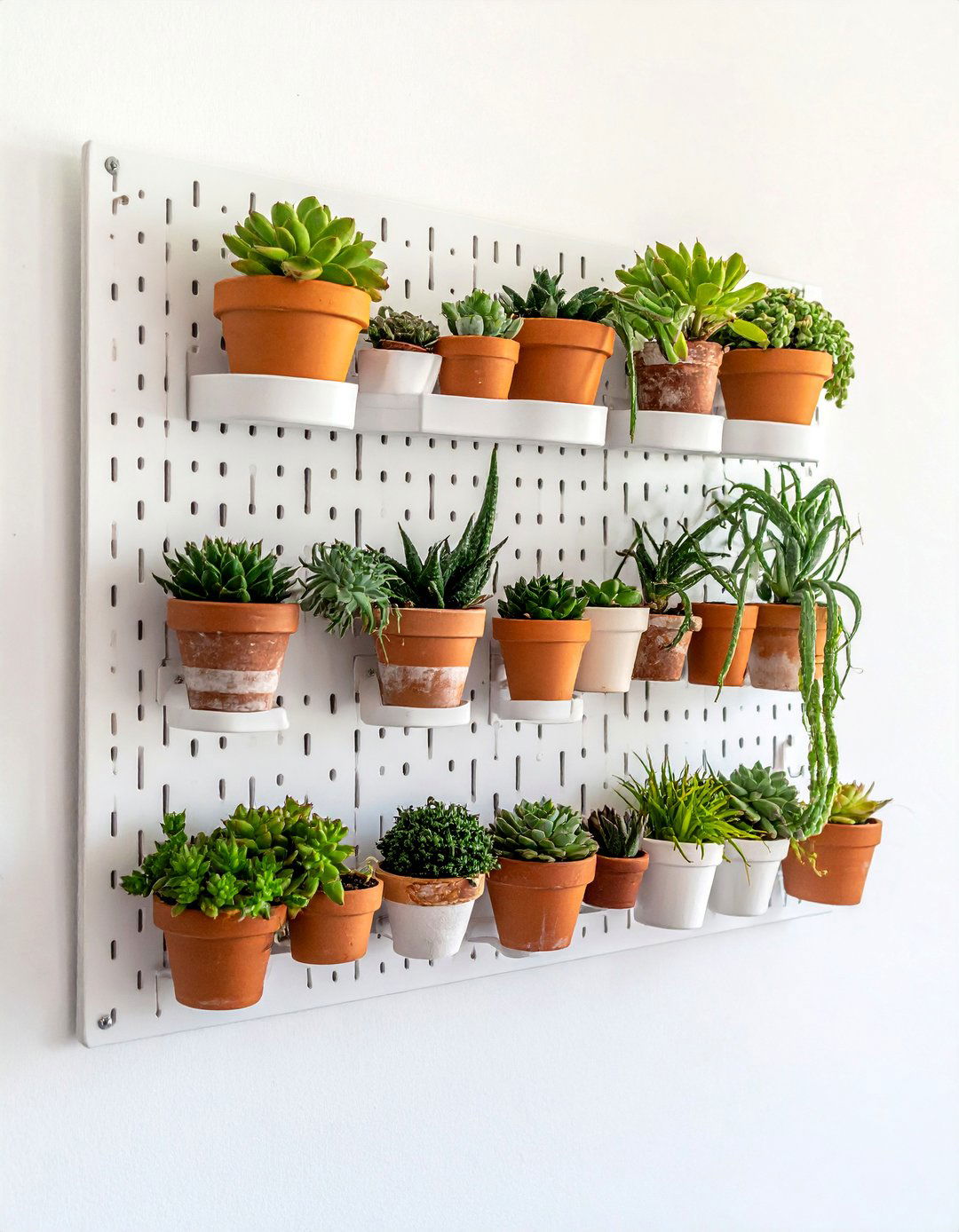
A pegboard provides a highly organized and customizable foundation for an indoor or outdoor vertical garden. Mount a large sheet of weather-resistant pegboard to a wall. You can then use specially designed pegboard hooks and shelves to hold small pots and planters. This system allows you to easily move and rearrange your plants as needed, creating a dynamic display. It’s perfect for a kitchen herb garden or for showcasing a collection of small succulents and air plants. Paint the pegboard a bright color to make it a vibrant feature wall that is both functional and decorative.
20. Reclaimed Ladder and Plank Vertical Garden
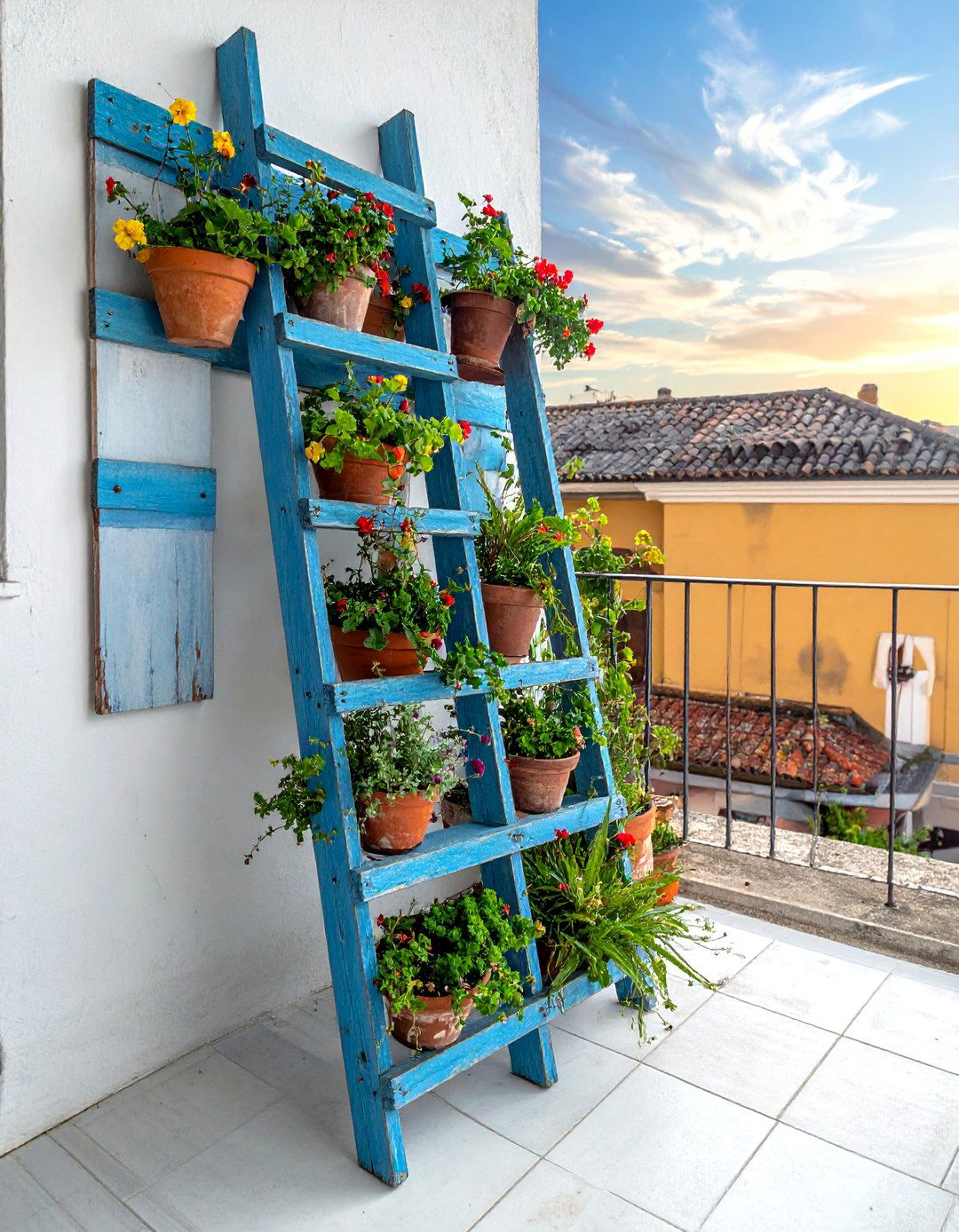
An old wooden ladder can be repurposed into a charming and rustic vertical garden shelf. Simply lean the open ladder against a wall and place wooden planks across the rungs to create instant shelving. This setup provides multiple levels for placing pots of varying sizes. The open design ensures each plant gets plenty of light and air. It’s a perfect way to display a mix of potted plants, from trailing ivy to colorful flowers and fragrant herbs. This no-build solution adds character and a sense of history to your patio or balcony space.
21. Galvanized Tub Tiered Vertical Garden
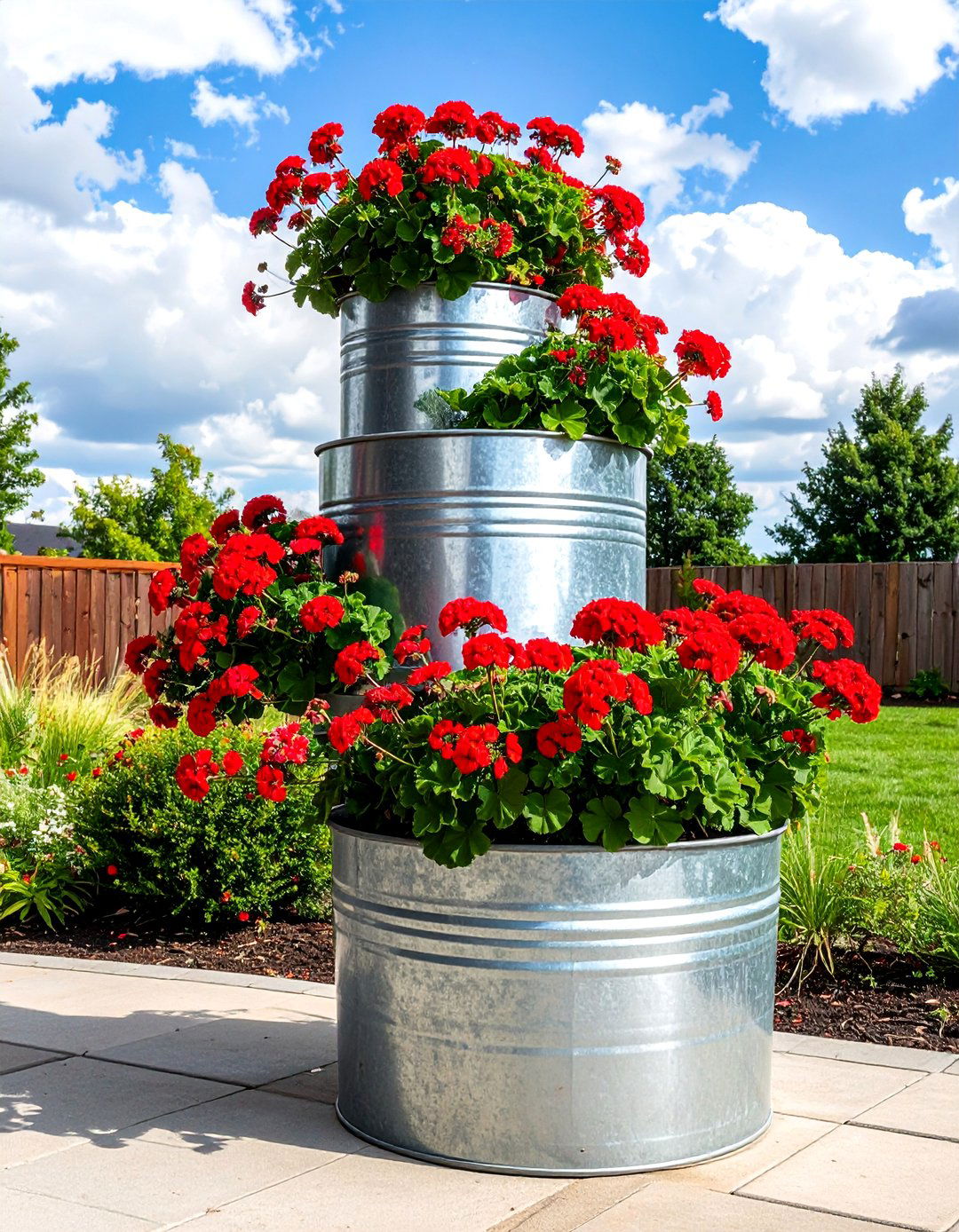
Create an industrial or farmhouse-style vertical garden by stacking galvanized metal tubs of different sizes. Start with the largest tub at the base, fill it with soil, and then place a smaller tub on top, repeating the process to create a tiered tower. Plant the exposed soil areas in each tier with your choice of flowers, herbs, or even vegetables. The metal provides a durable and weather-resistant container, while the tiered design is visually appealing and makes efficient use of vertical space. Ensure you drill drainage holes in the bottom of each tub before planting.
22. Wall-Mounted Terracotta Pot Vertical Garden
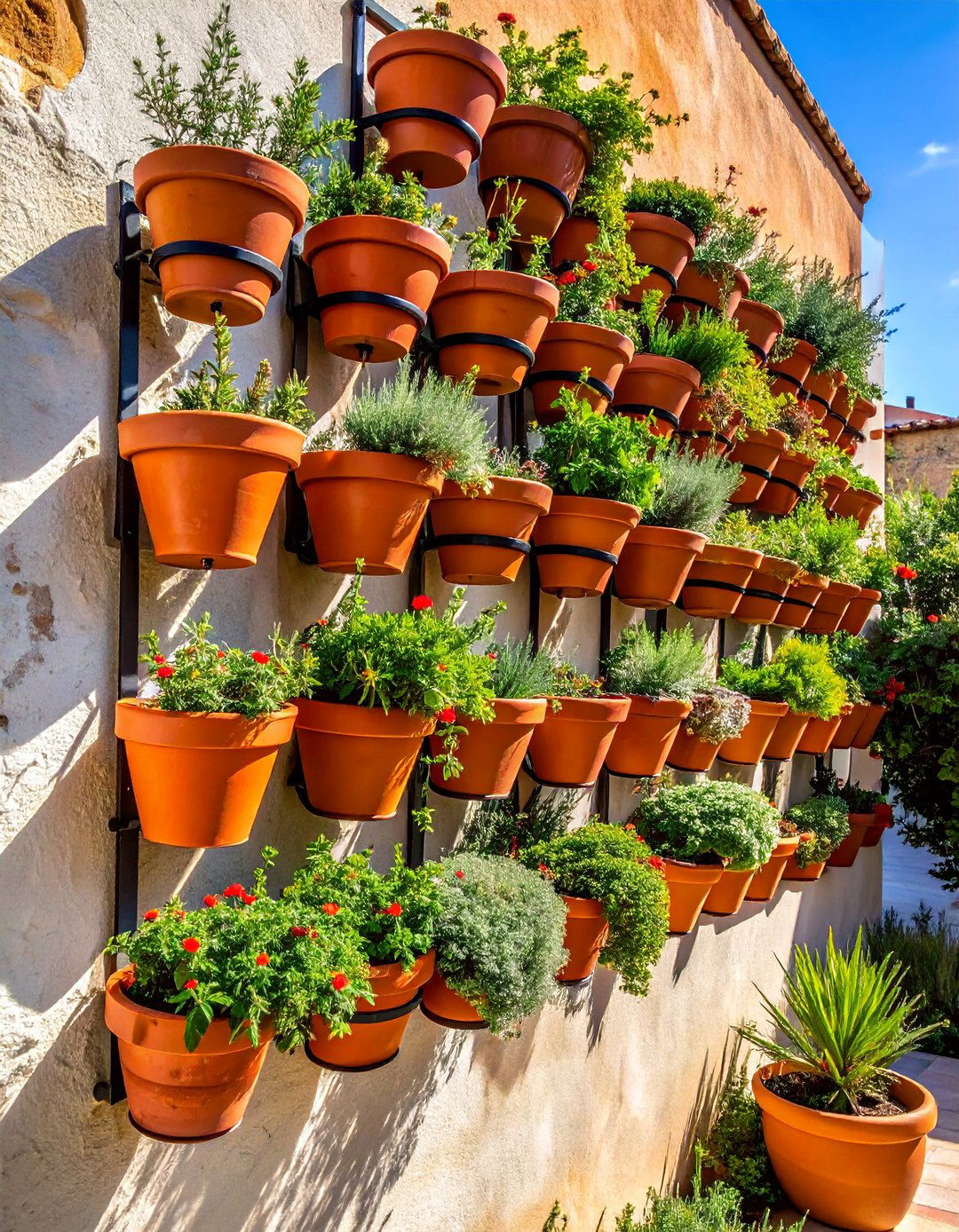
For a classic Mediterranean feel, create a vertical garden using terracotta pots. There are several ways to mount them on a wall. You can use specially designed metal ring holders that attach to a wall or fence, securely cradling each pot. Another option is to use a system of vertical wooden slats with cutouts that allow the pot rims to slide in and be held in place. This method is perfect for sun-loving herbs like rosemary and oregano or vibrant flowers like geraniums, bringing a warm, earthy aesthetic to your small outdoor living area.
23. Indoor Tension Rod Vertical Garden
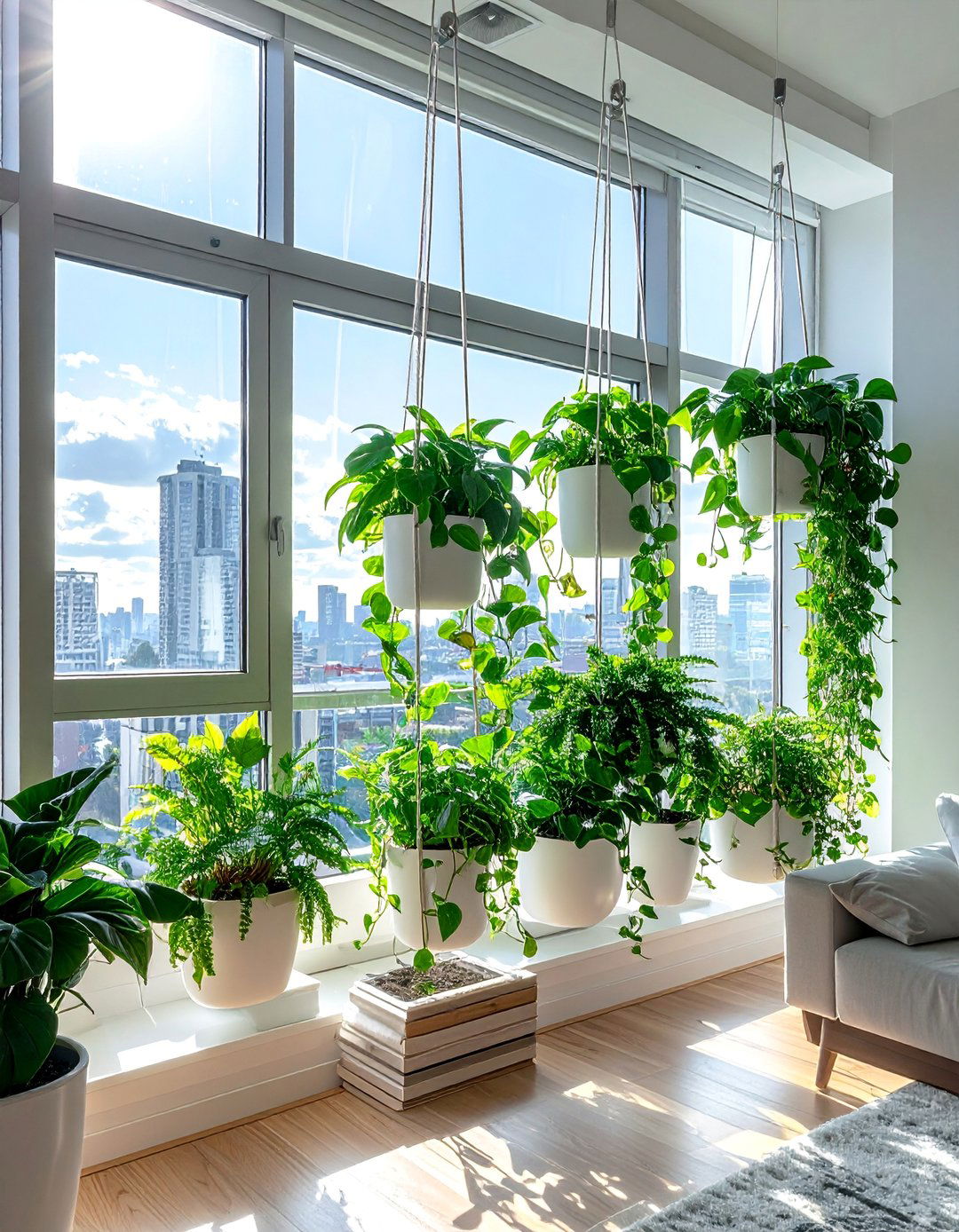
Utilize the space in front of a sunny window by creating a vertical garden with a tension rod. Install a sturdy tension rod vertically or horizontally within the window frame. Then, use S-hooks to hang lightweight planters or kokedama from the rod. This is an ideal solution for apartment dwellers who lack outdoor space but have a bright window. It’s perfect for growing herbs, small trailing plants like pothos, or even starting seedlings. This method keeps your plants in prime sunlight without taking up any valuable floor or counter space, making it incredibly efficient.
24. Living Archway Vertical Garden
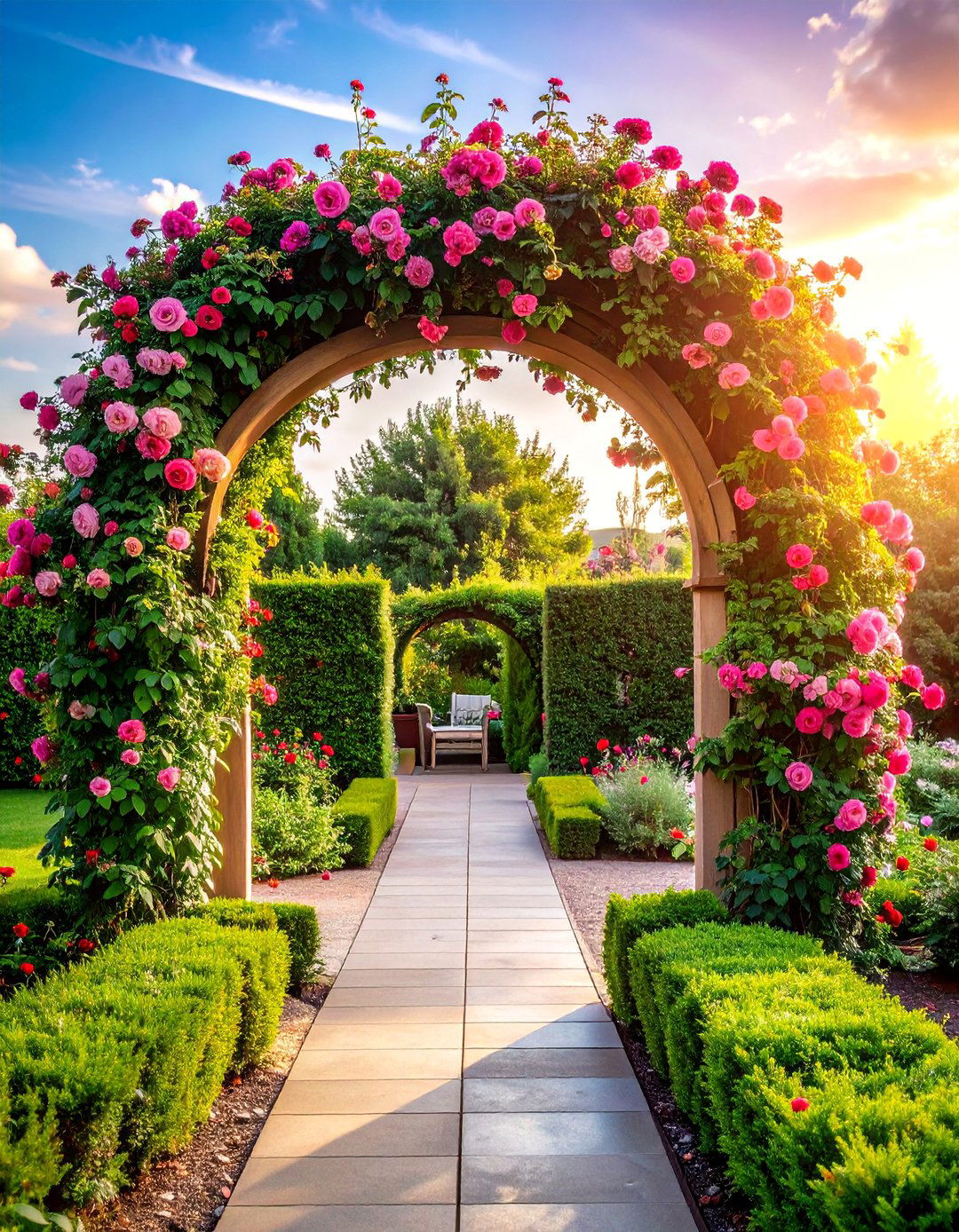
If your space allows for it, a living archway can create a stunning entrance and a productive vertical garden. Install a simple metal or wooden garden arch over a pathway or at the entrance to your patio. Plant climbing species at the base on both sides—consider classic choices like climbing roses or clematis for ornamental beauty, or grow edible options like pole beans, Malabar spinach, or vining squash. As the plants grow and cover the structure, they form a beautiful, leafy tunnel that adds depth, drama, and a touch of enchantment to your small garden space.
25. DIY Vertical Garden with Woolly Pockets
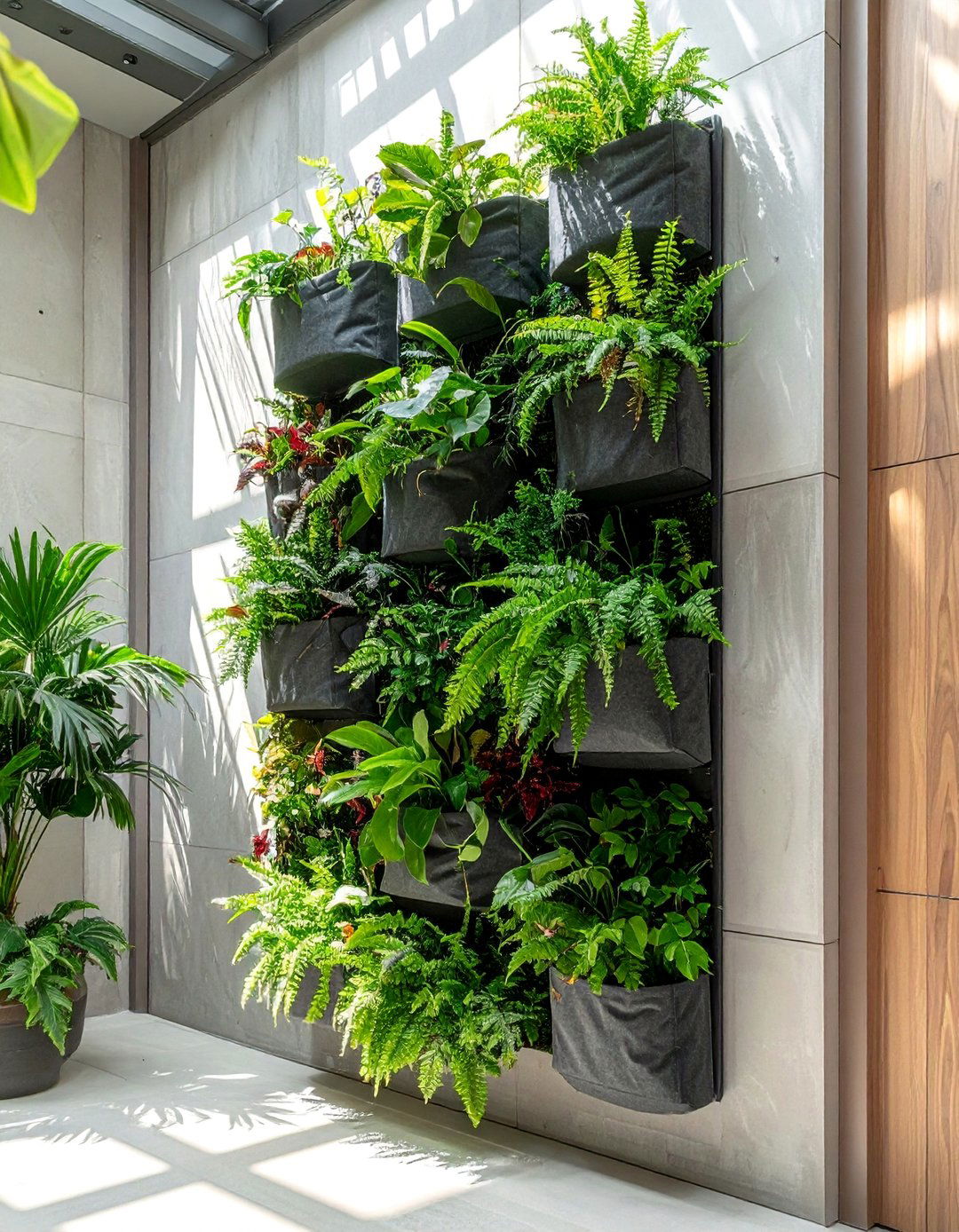
Woolly Pockets are modular, flexible planters made from recycled plastic bottles, designed to be breathable and self-watering. These soft-sided containers can be easily mounted on any vertical surface, indoors or out, to create a lush living wall. To set up this vertical garden, simply attach the pockets to a wall using the provided grommets and fill them with soil and plants. Their design promotes healthy root growth through air pruning. They are perfect for creating a dense, seamless wall of greenery with herbs, ornamentals, or even small vegetables, offering a professional look with DIY simplicity.
26. Gated Fence Vertical Garden Display
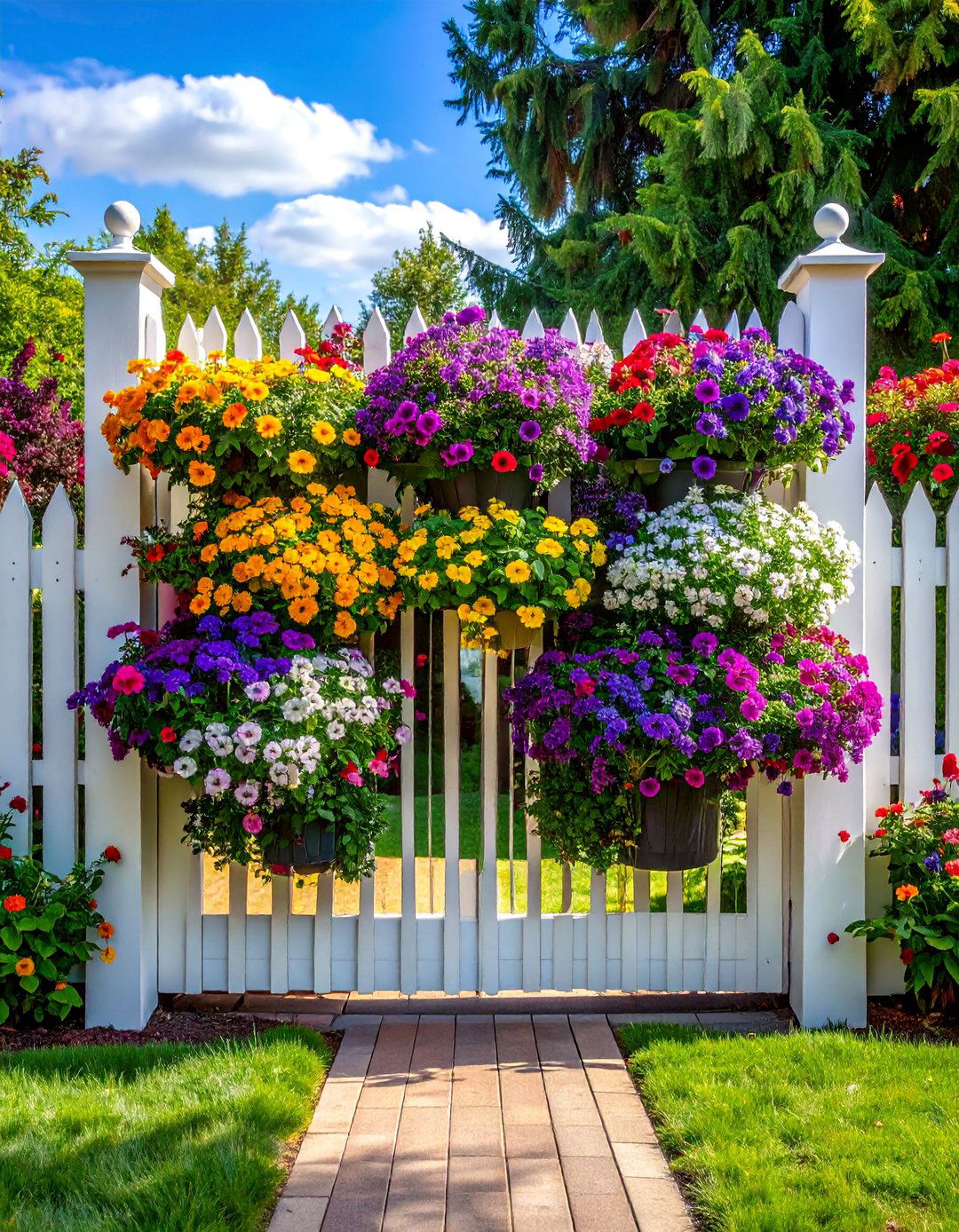
A gated fence provides an excellent, ready-made structure for a charming vertical garden. Utilize the slats or wire mesh of the gate to hang planters and baskets. You can use over-the-rail planters that hook directly onto the top of the gate or use S-hooks to hang individual pots from the rungs. This approach is ideal for creating a welcoming and colorful entrance to your garden or patio area. Plant with bright, cheerful flowers or a mix of aromatic herbs to greet guests with beautiful sights and scents. It transforms a purely functional object into a living, decorative feature.
27. Hexagonal Modular Vertical Garden
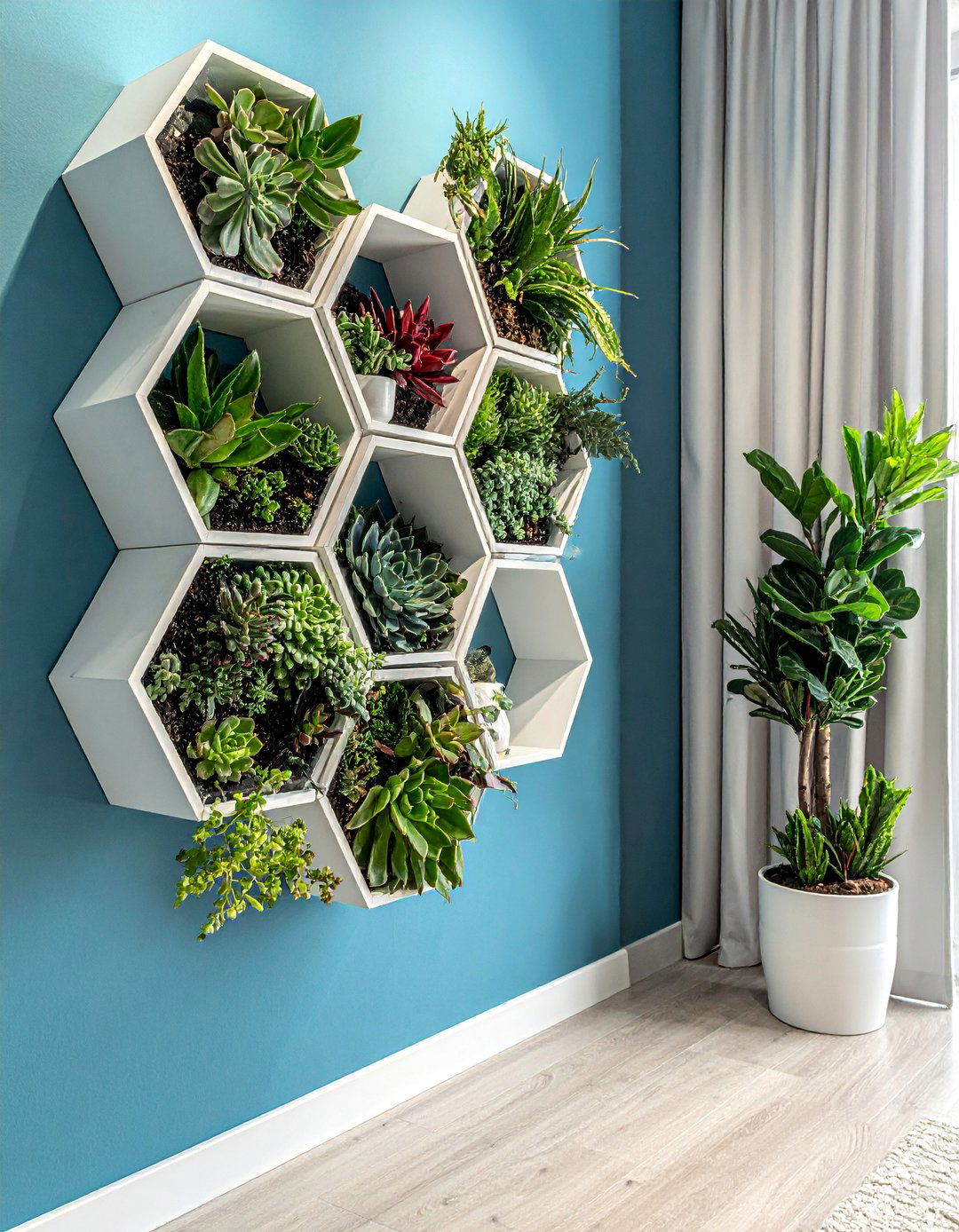
For a contemporary and geometric aesthetic, use hexagonal or honeycomb-shaped modular planters. These individual units can be mounted on a wall and arranged in any pattern you desire, allowing for a high degree of creative freedom. You can cluster them together to create a dense green wall or space them out for a more minimalist, artistic effect. Each hexagon can house a different plant, making them perfect for showcasing a collection of succulents, air plants, or small herbs. This modern approach turns your vertical garden into a dynamic piece of customizable wall art that grows and evolves.
28. Tin Can Wall Vertical Garden
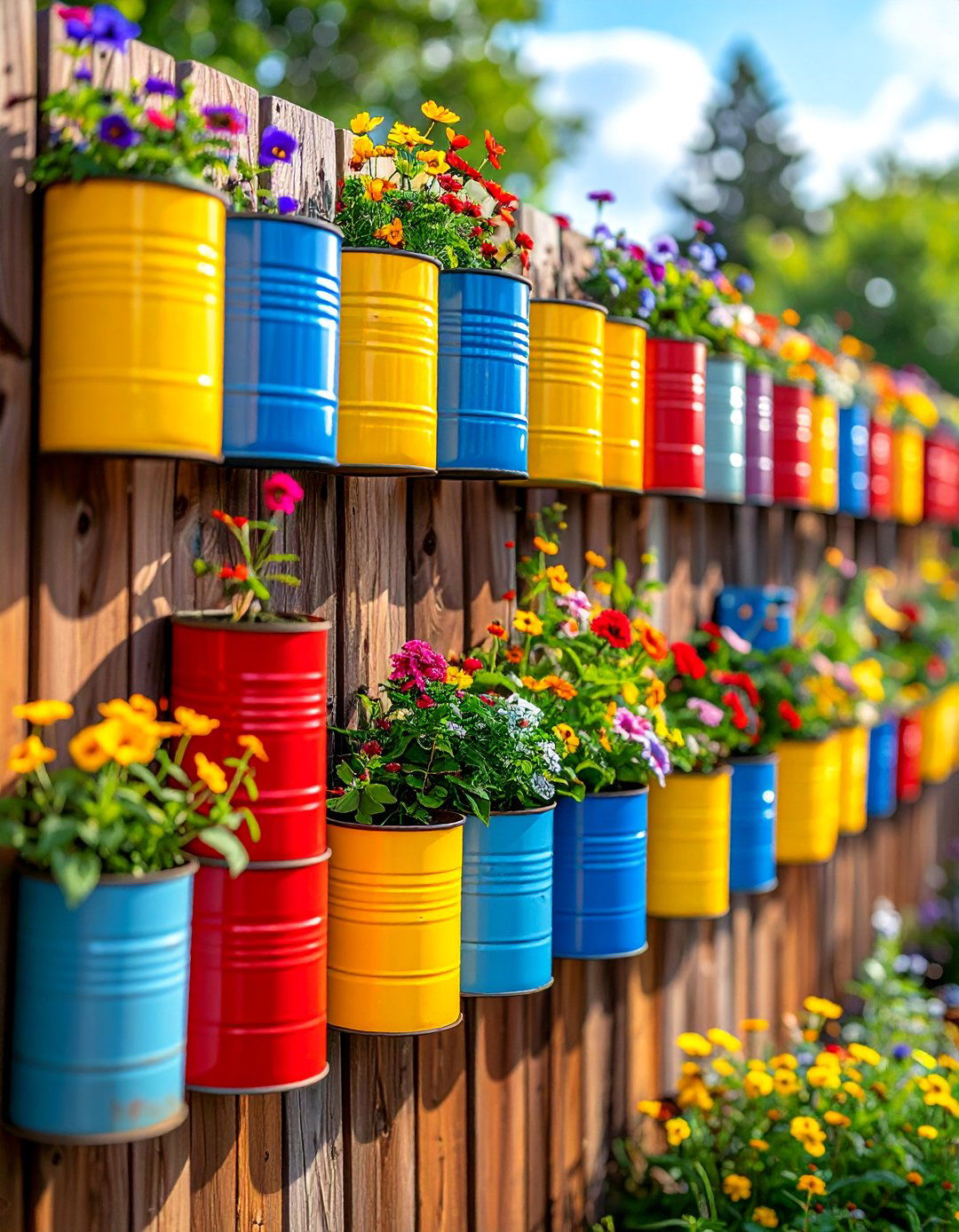
An upcycled tin can vertical garden is a colorful, charming, and extremely low-cost DIY project. Collect tin cans of various sizes, clean them thoroughly, and consider painting them in bright, coordinating colors to create a cheerful display. Drill a few drainage holes in the bottom of each can and a hole on the side for mounting. You can then screw them directly onto a wooden fence or a backing board in any pattern you like. These small containers are perfect for growing individual herbs, annual flowers, or succulents, adding a whimsical and eco-friendly touch.
29. Stacked Crate Vertical Garden
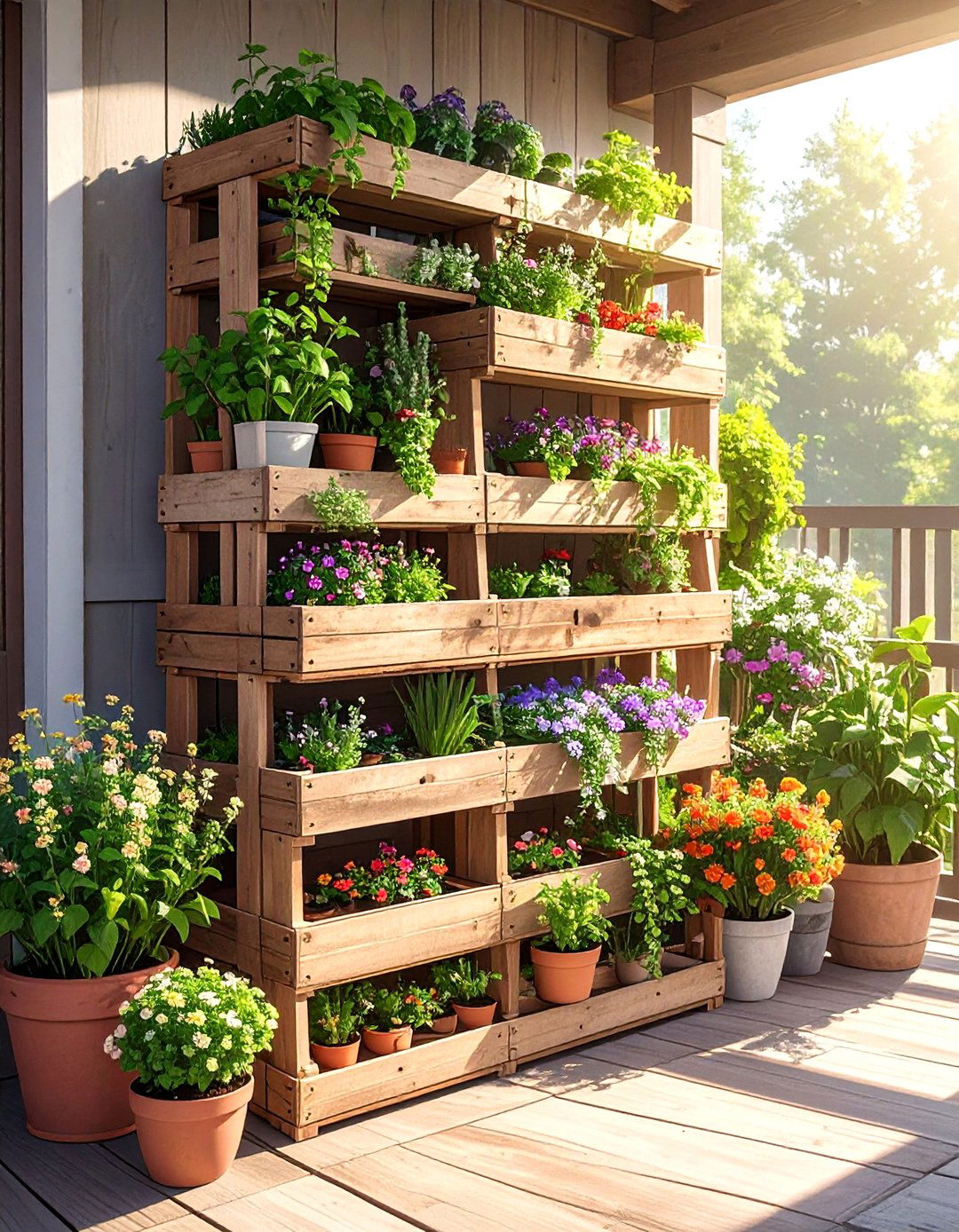
Wooden crates, such as those used for fruit or wine, can be stacked to create a rustic and versatile vertical garden. Arrange the crates on their sides in a staggered or symmetrical formation to build a freestanding shelving unit. This provides multiple surfaces and cubbies for placing potted plants. For a more integrated look, you can line the crates with landscape fabric and fill them directly with soil to plant within them. This method is perfect for a relaxed, farmhouse aesthetic and allows you to display a wide variety of plants in different-sized containers.
30. Self-Watering Vertical Garden Kit
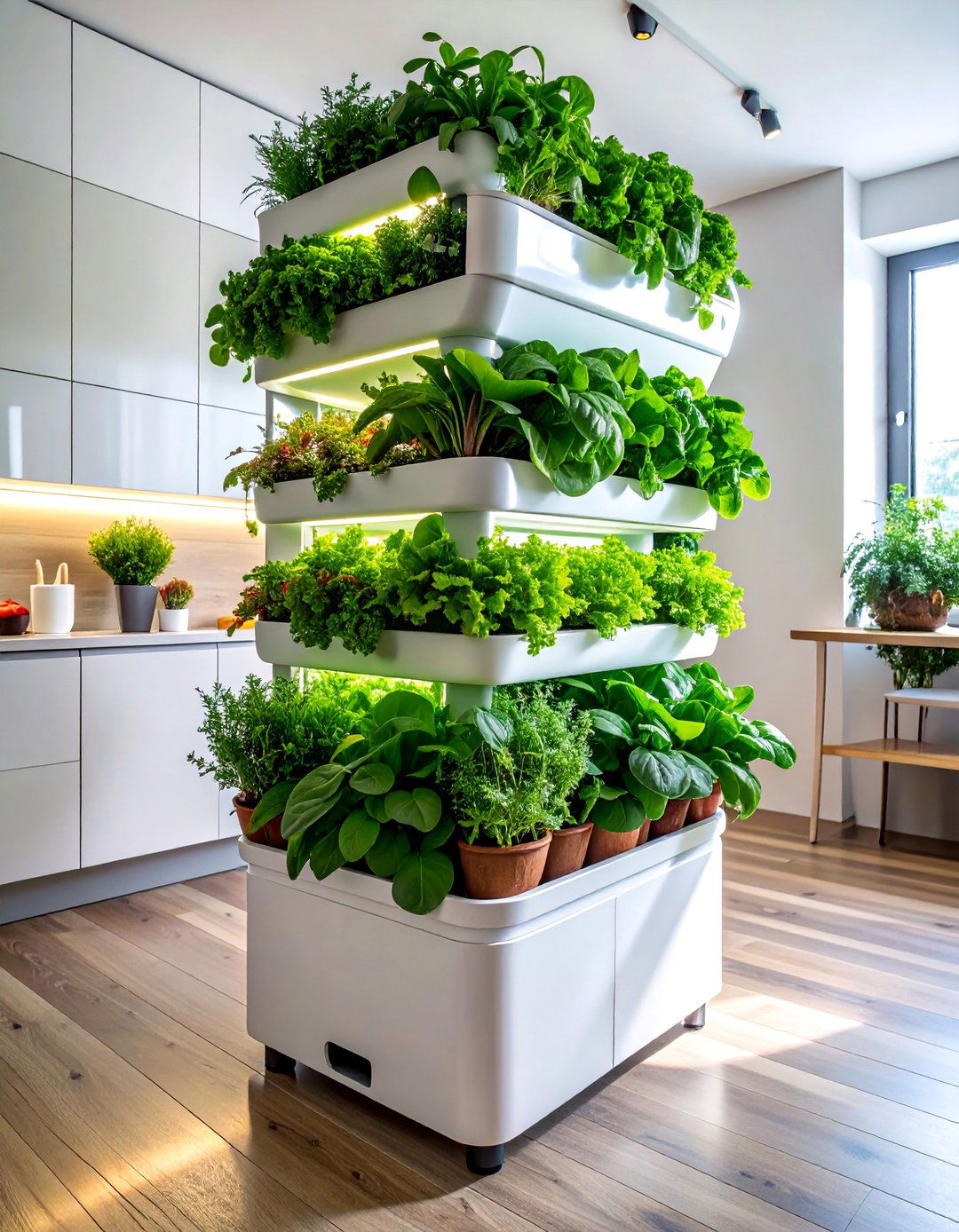
For those who want a low-maintenance solution, a self-watering vertical garden kit is an excellent choice. These commercially available systems are designed with built-in reservoirs that provide a consistent water supply to the plants through a wicking system or drip irrigation. This significantly reduces the frequency of watering and helps prevent both overwatering and underwatering. These kits come in various sizes and styles, from small wall-mounted panels to larger freestanding towers, making them a convenient and highly effective option for busy individuals or those new to gardening who want guaranteed success.
31. Chain-Link Fence Vertical Garden
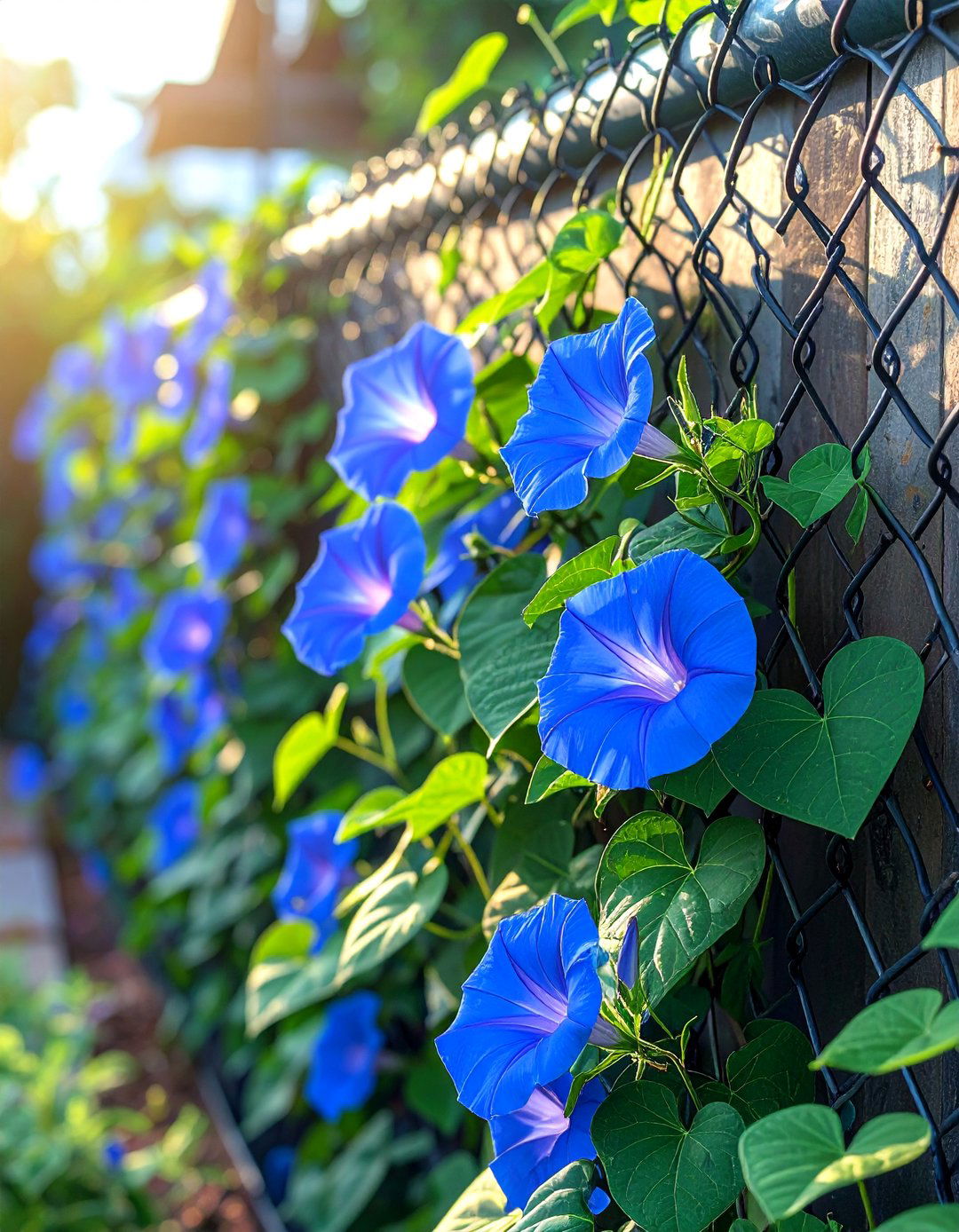
A chain-link fence, often seen as purely functional, can be transformed into a vibrant vertical garden. The open grid structure is perfect for attaching planters or for supporting climbing plants. You can weave climbing vines like morning glories or black-eyed Susan vines through the links to create a dense wall of flowers. Alternatively, use S-hooks or zip ties to hang pots, window boxes, or even repurposed containers like plastic bottles. This method effectively masks the utilitarian look of the fence, turning it into a beautiful and productive living boundary for your yard or patio.
32. Spiral Herb Vertical Garden
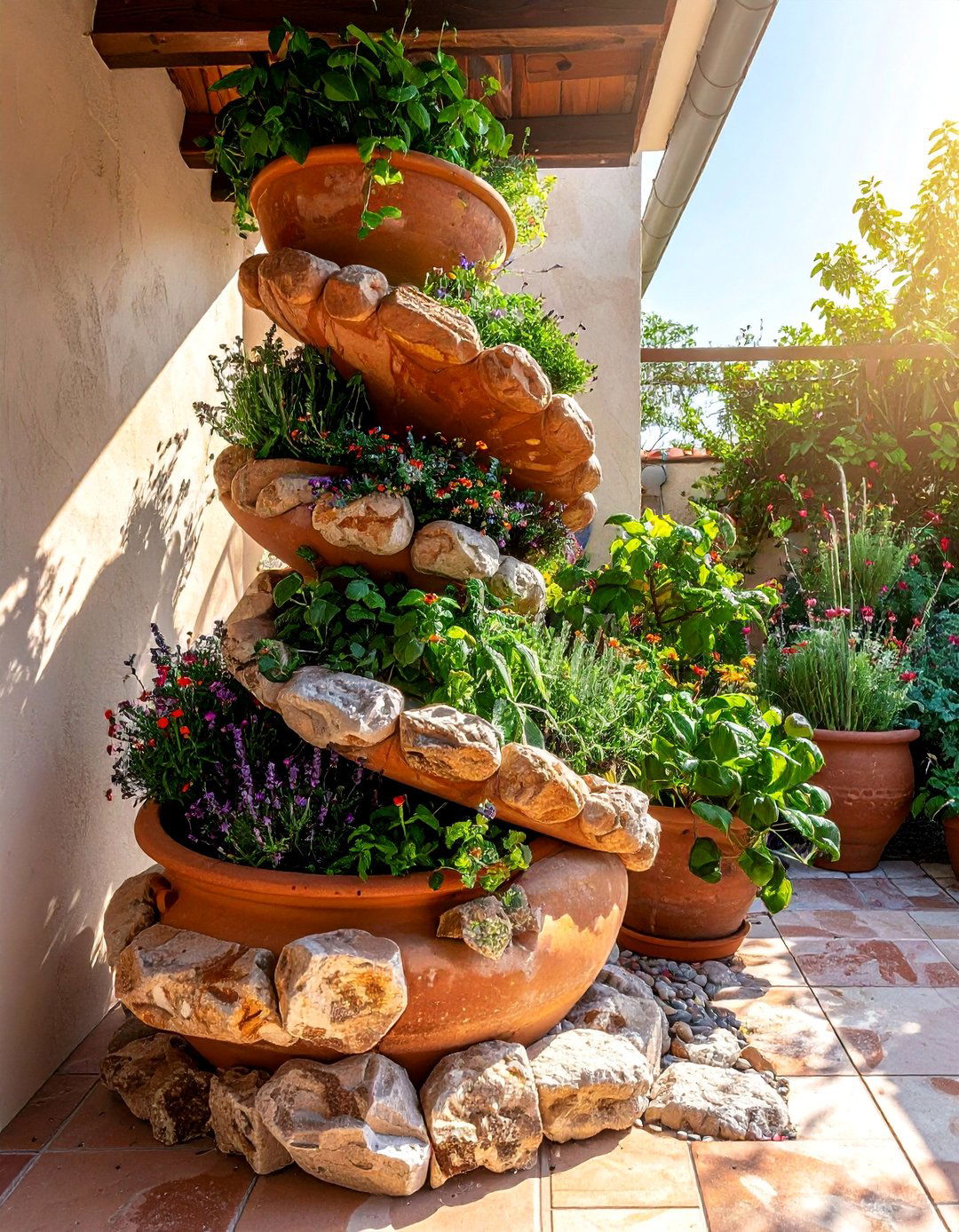
While traditionally built on the ground, the concept of a herb spiral can be adapted into a more compact, vertical structure. Using a large, deep container as a base, you can build a spiral form upwards with rocks, bricks, or a metal frame. The spiraling levels create different microclimates and drainage conditions, allowing you to plant a variety of herbs with different needs in a very small footprint. For example, plant drought-tolerant herbs like rosemary at the top and moisture-loving mint at the bottom. This design is both highly functional and aesthetically pleasing.
33. Chandelier Style Hanging Vertical Garden
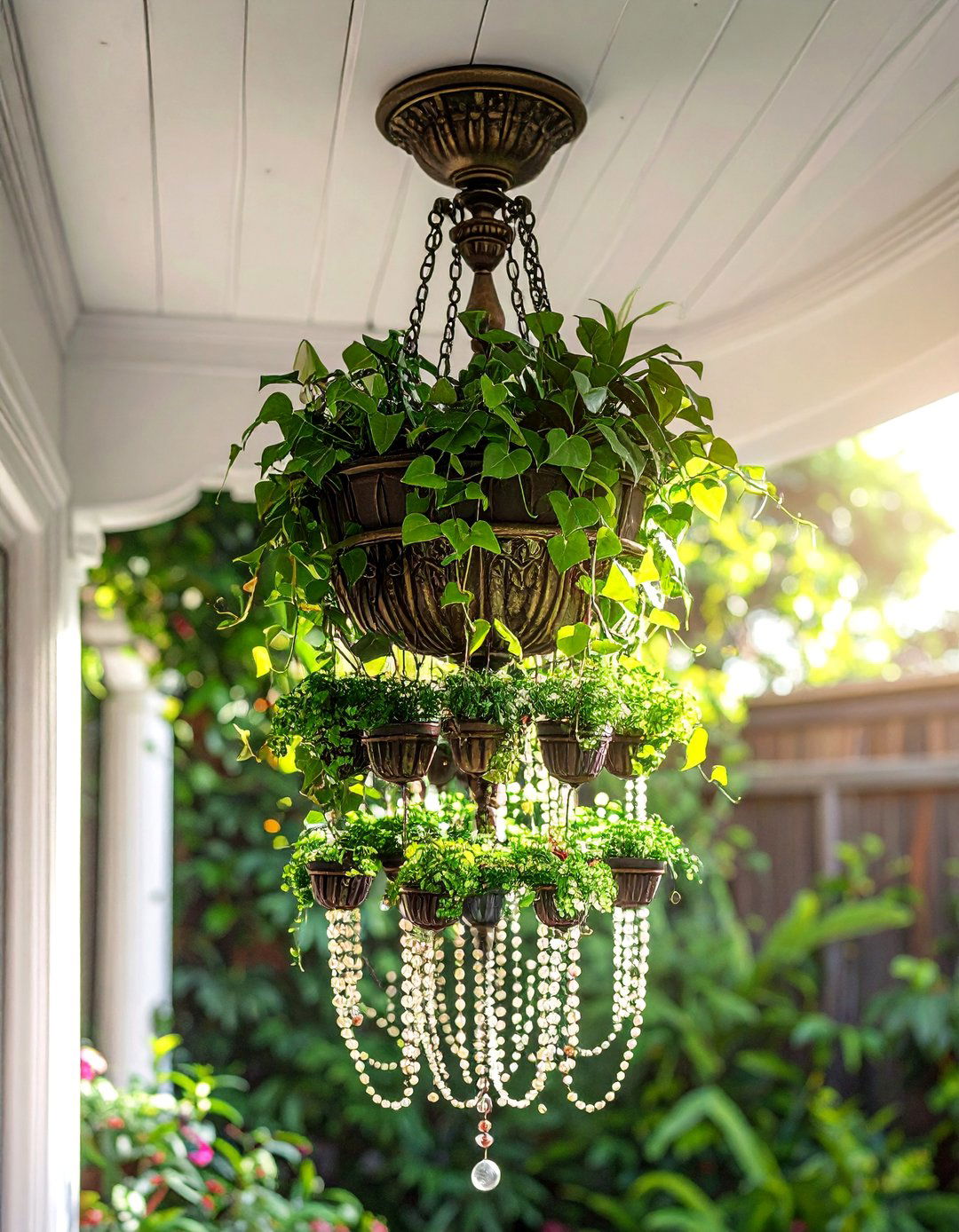
Create an elegant and unexpected vertical garden by repurposing an old chandelier. Remove the light fixtures and wiring, and then use the arms and cups of the chandelier to hold small pots or moss-based plantings like kokedama. Hang the entire structure from a sturdy hook on a porch ceiling or a strong tree branch. This whimsical planter is perfect for trailing plants like ivy or string of pearls, which will drape gracefully from the arms, creating a stunning living light fixture. It adds a touch of vintage glamour and artistic flair to any covered outdoor space.
34. Magnetic Pot Vertical Garden
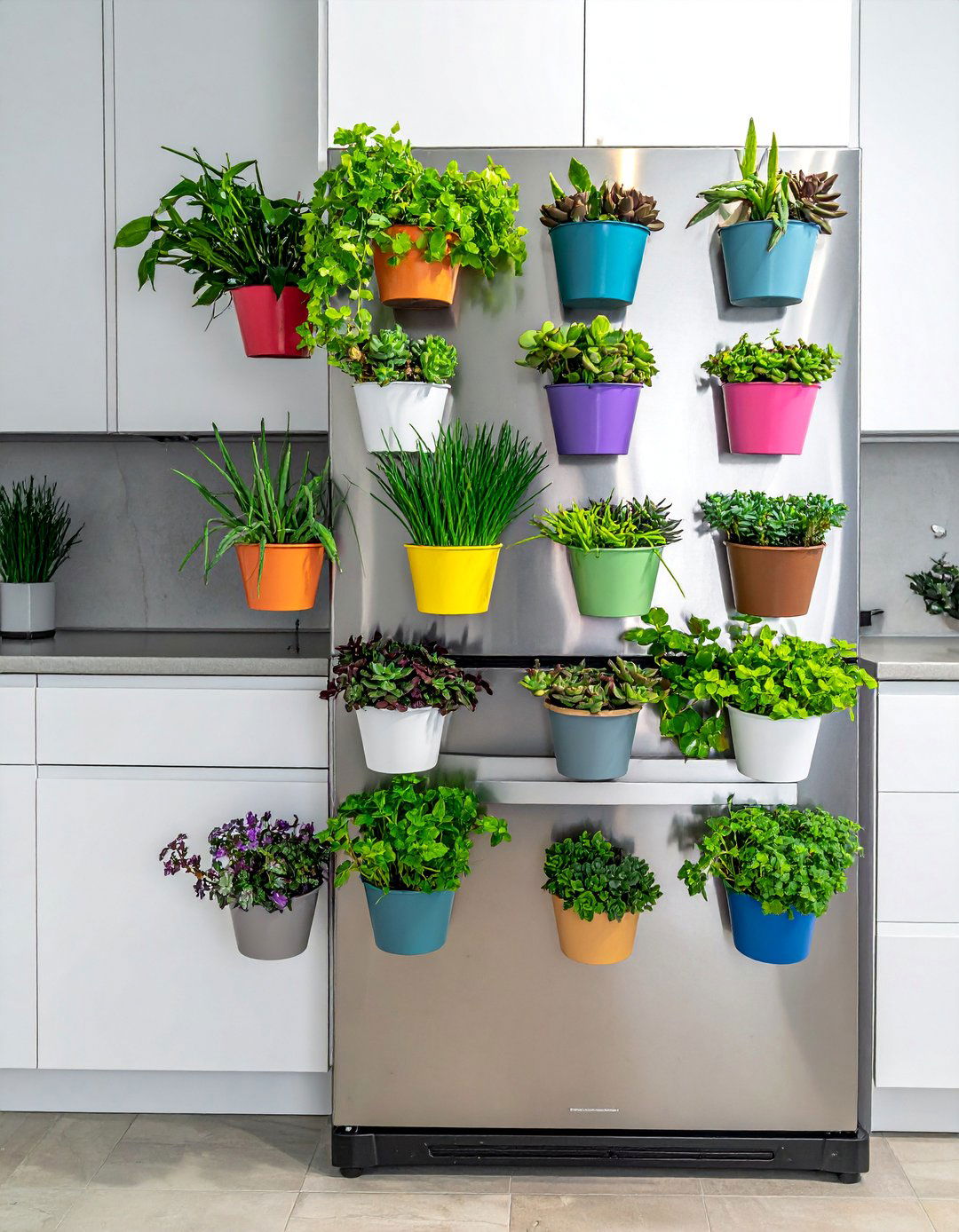
For a small-scale and highly flexible indoor vertical garden, use magnetic pots. These small containers have strong magnets on their back, allowing them to stick to any metal surface, such as a refrigerator, a metal filing cabinet, or a specially mounted metal sheet on a wall. They are perfect for growing small herbs like chives and thyme, or for displaying tiny succulents and air plants. You can easily move them around to create new designs or to ensure they get the right amount of light. This is a fun and modern solution for adding greenery to your kitchen.
35. Window Box Vertical Garden Display
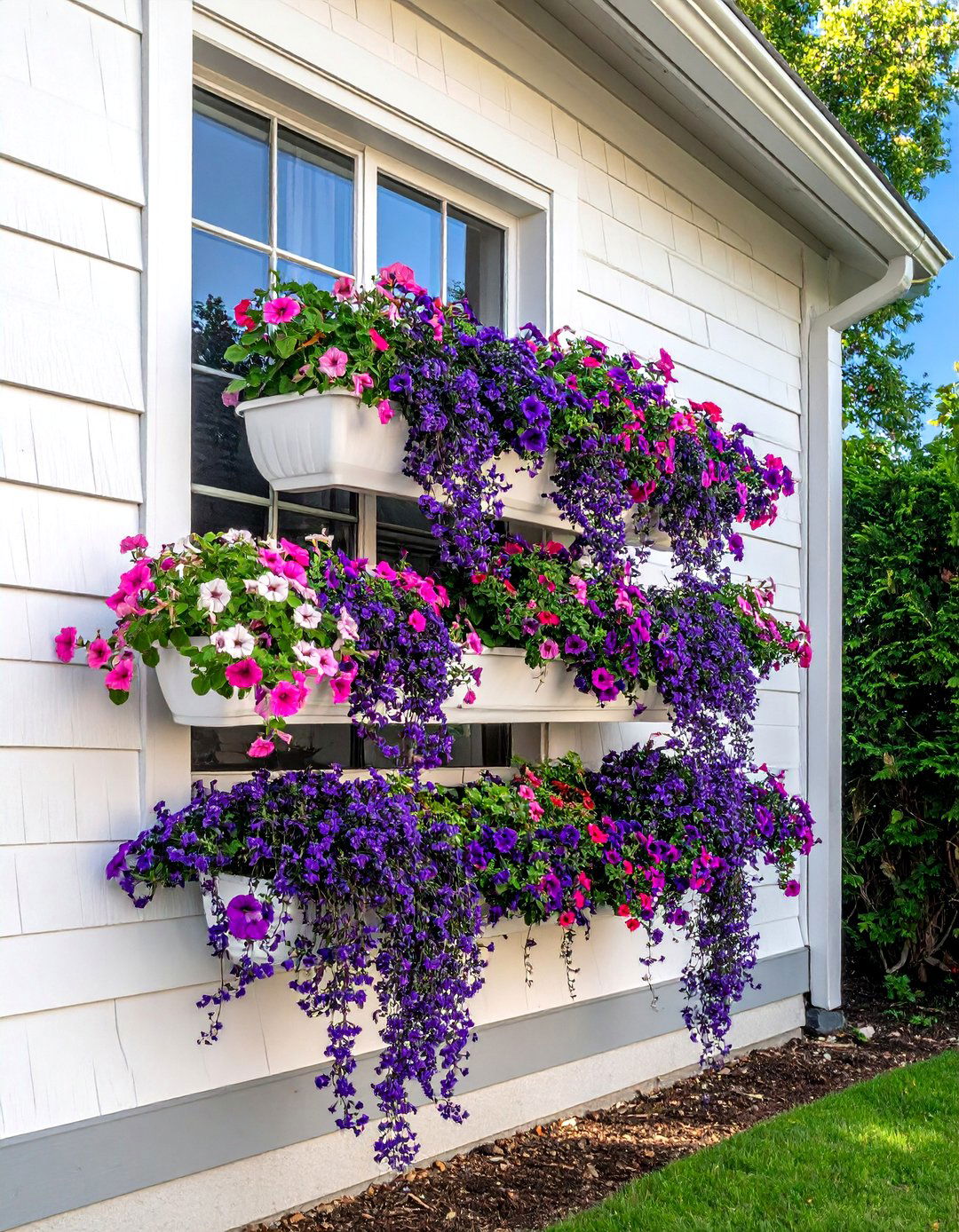
Maximize the potential of window boxes by thinking vertically. Instead of just one box, install several window boxes in a stacked arrangement on a wall or below a window. This creates multiple tiers of planting space. Plant the top boxes with upright flowers or herbs, and fill the lower boxes with trailing plants like ivy, sweet potato vine, or wave petunias. The cascading foliage and flowers will create a beautiful waterfall effect, covering the wall in a curtain of green and adding significant curb appeal to your home's exterior without using any ground space.
36. Leaning Bookshelf Vertical Garden
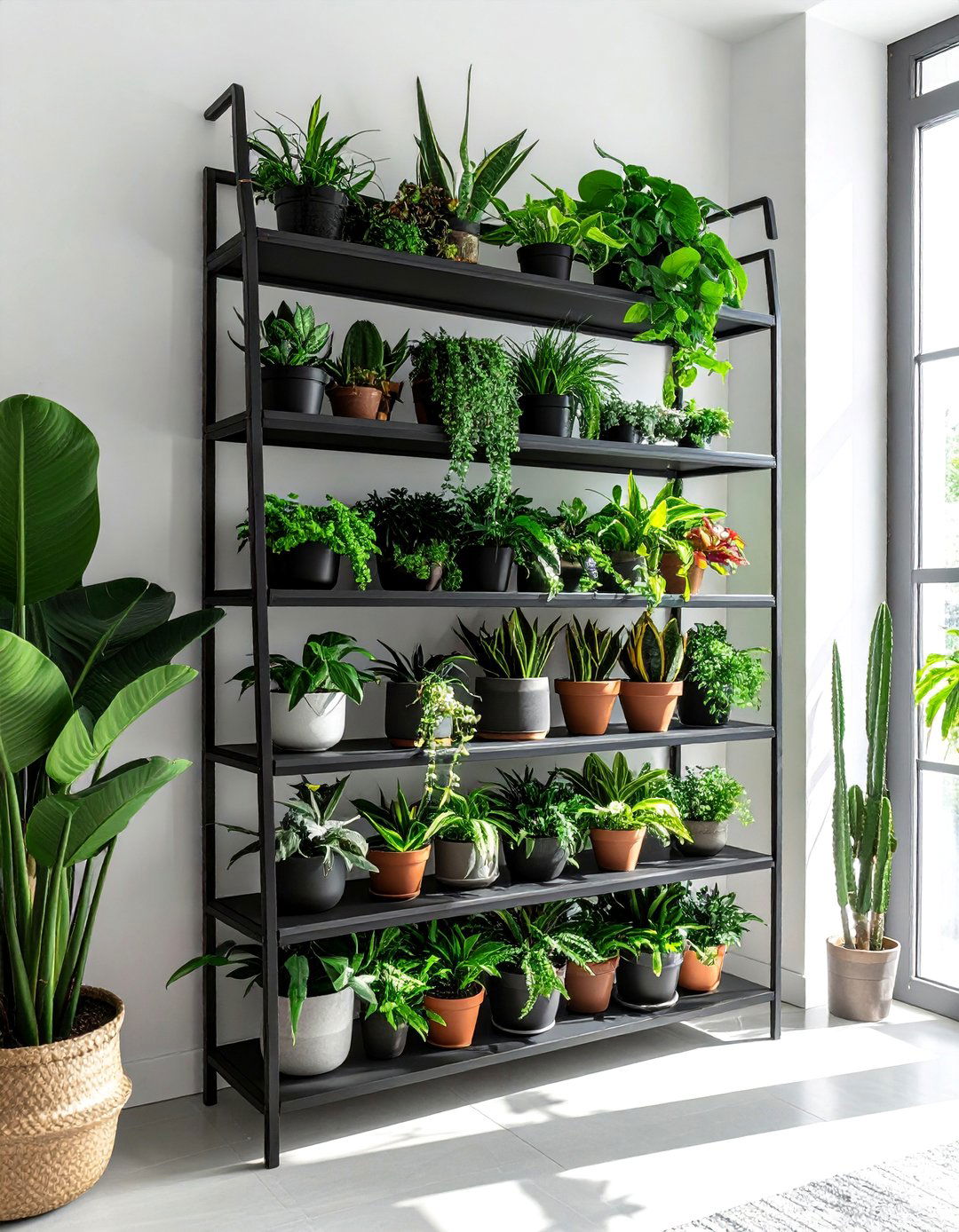
A tall, narrow bookshelf, often called a ladder shelf, makes an excellent ready-made structure for a vertical garden. Its open design and varying shelf depths are perfect for accommodating pots of different sizes. Place it against a wall on a balcony or patio and arrange your plants on the shelves. Position sun-loving plants on the top shelves and shade-tolerant ones at the bottom. This is an incredibly simple and stylish way to organize and display a large collection of potted plants, turning them into a cohesive and attractive feature that draws the eye upward.
37. Rain Boot Vertical Garden
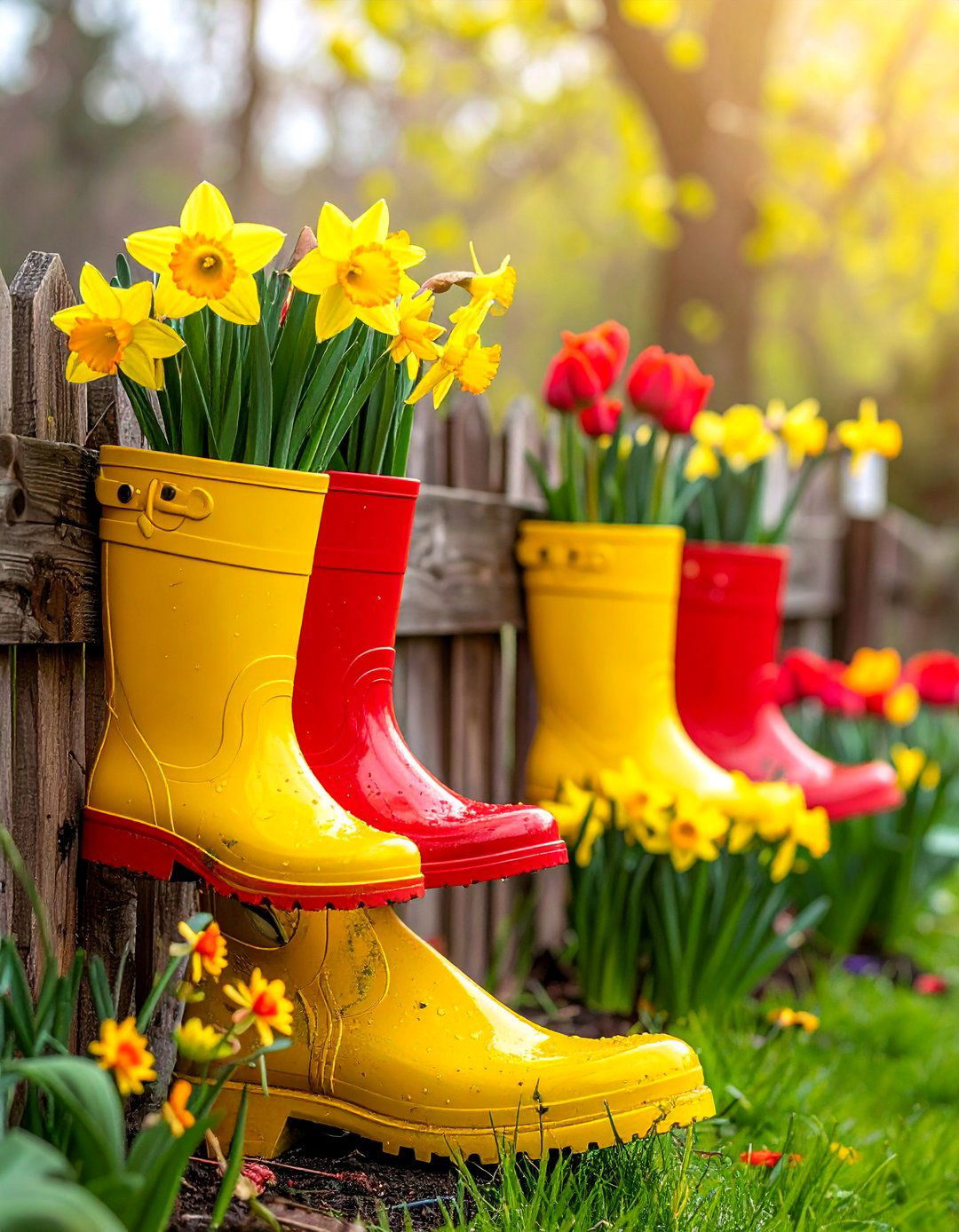
For a quirky and playful vertical garden, repurpose old rain boots. Colorful rubber boots make for surprisingly durable and weather-resistant planters. Drill drainage holes in the soles, fill them with potting soil, and plant them with cheerful flowers or herbs. You can then mount the boots directly onto a fence or wall at different heights, creating a fun and whimsical display. This is a fantastic project to do with children and adds a unique splash of personality and color to your garden, proving that almost anything can be turned into a creative planter.
38. Fabric Hanging Basket Vertical Garden
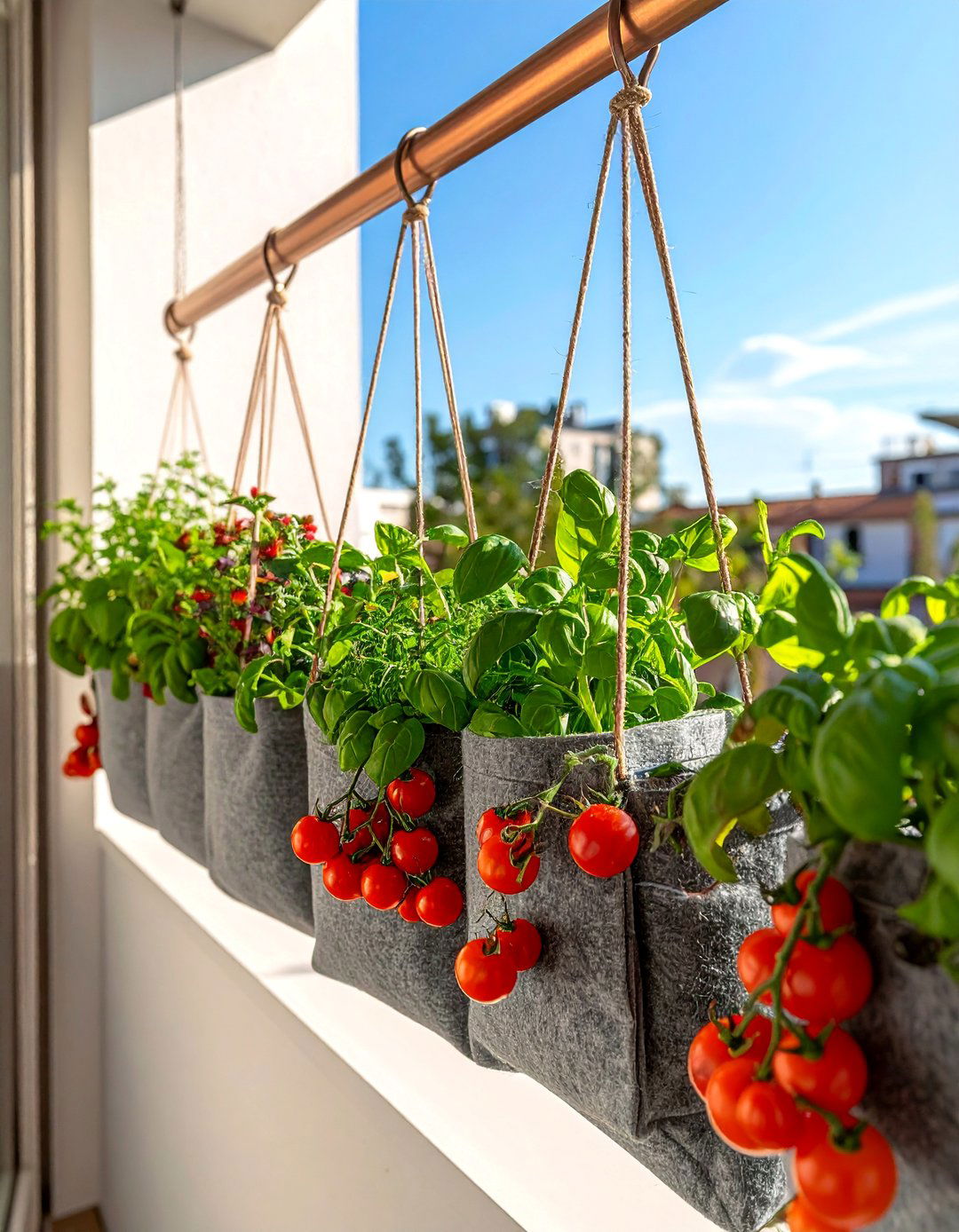
Fabric hanging baskets or pouches offer a soft, lightweight alternative to traditional pots for a vertical garden. Made from materials like felt or canvas, these containers can be hung individually from hooks or grouped together on a rod. Their flexible nature allows for healthy root development and excellent aeration. They are particularly well-suited for creating a cascade of strawberries, cherry tomatoes, or trailing flowers like fuchsias. By hanging them at different levels, you can create a dense, multi-layered arrangement of plants that adds texture and dimension to a small, sunny corner.
39. Wagon Wheel Trellis Vertical Garden
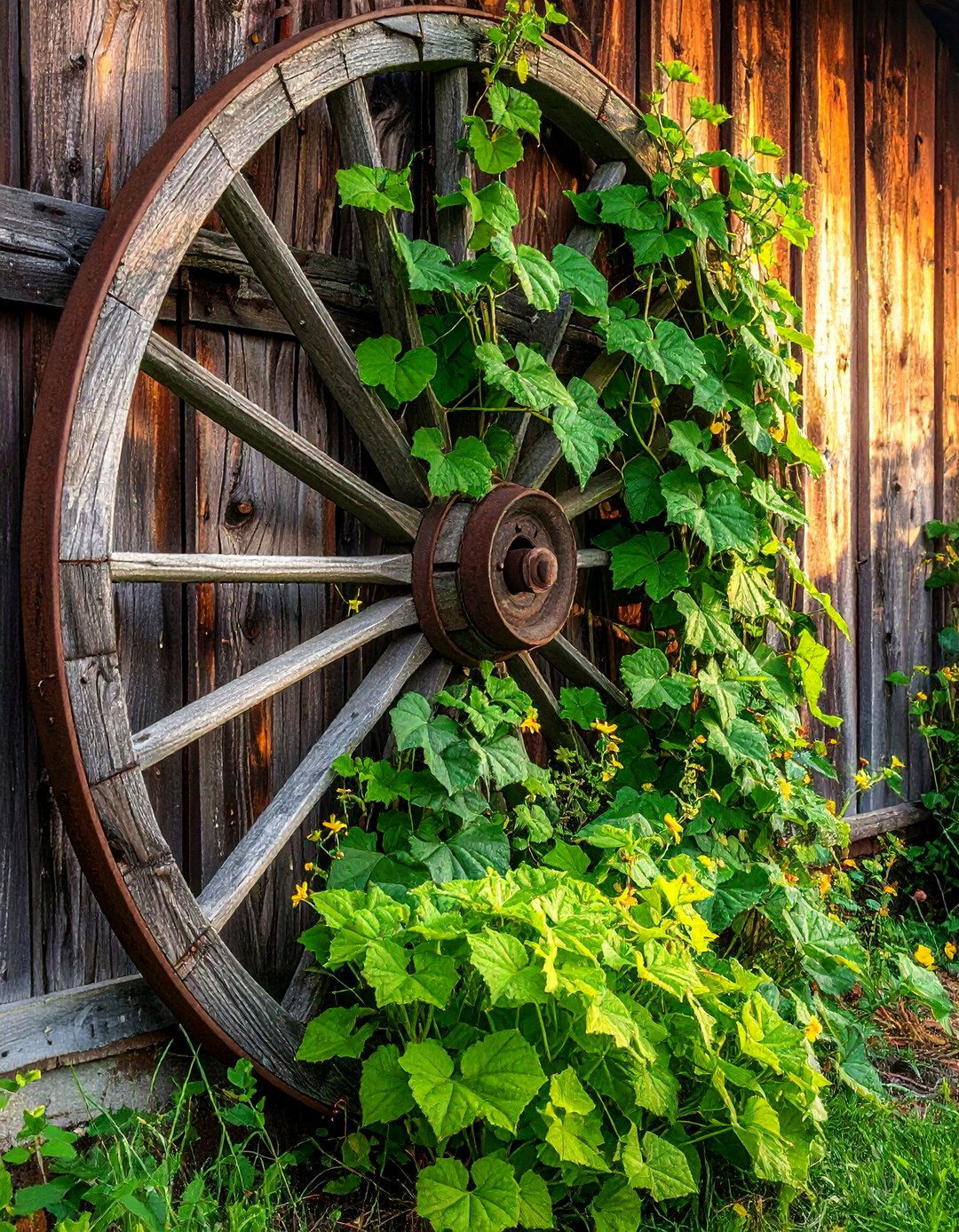
An old wagon wheel can be repurposed into a beautiful and functional trellis for a rustic-themed vertical garden. Mount the wheel on a wall or fence, and use the spokes as a guide and support for climbing plants. Plant a flowering vine like clematis or a climbing vegetable like a cucumber at the base, and gently train its tendrils to wrap around the spokes as it grows. The circular frame creates a unique and eye-catching focal point, blending vintage charm with natural beauty. It’s a simple yet highly effective way to add structure and interest to your vertical planting space.
40. Gourd Trellis Vertical Garden
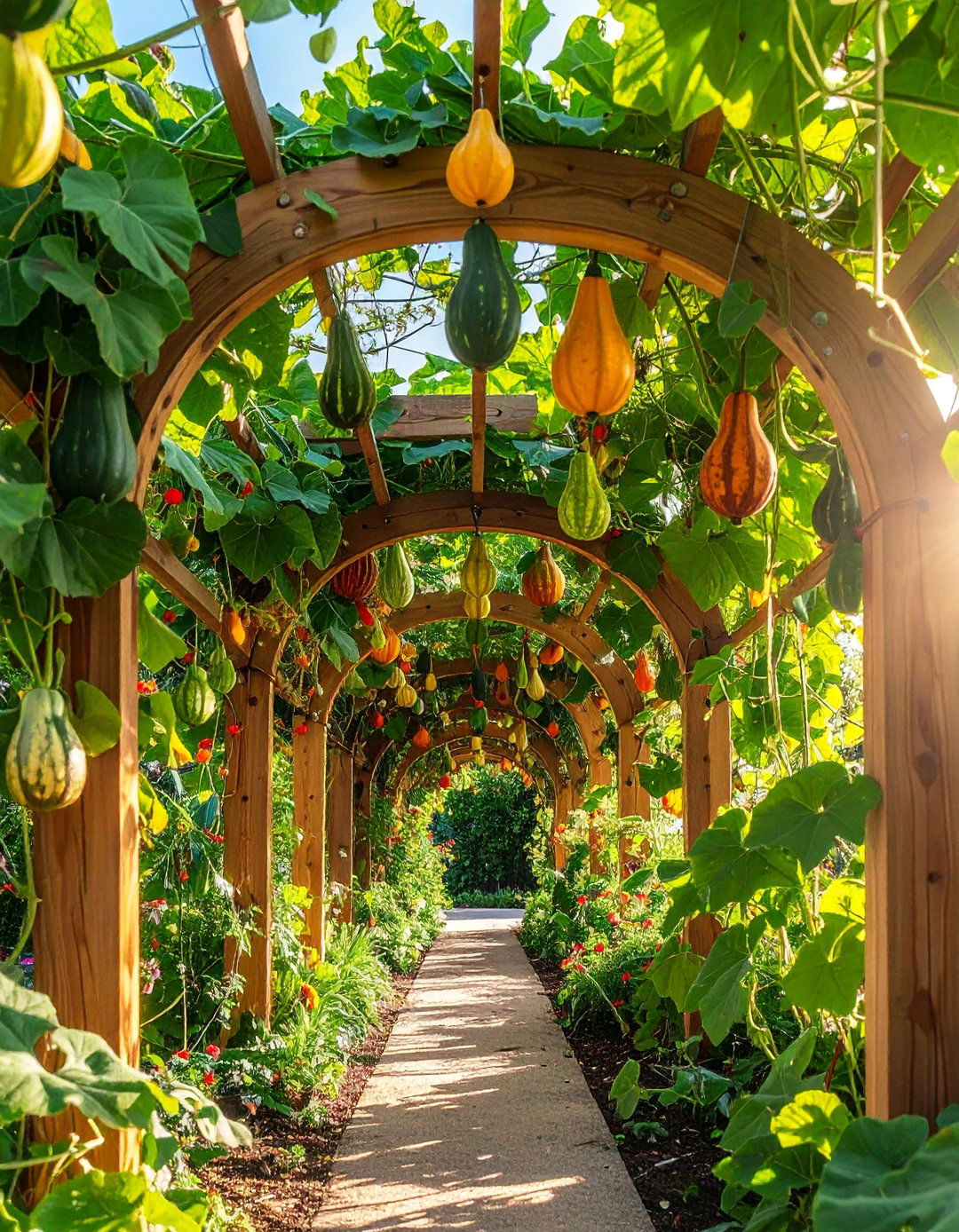
Growing gourds vertically on a strong trellis or arch is a fantastic way to cultivate these unique plants in a small space. Gourds produce long, rambling vines that will quickly cover a structure, and as the fruits develop, they hang down, creating a fascinating and decorative display. You will need a very sturdy trellis, arch, or pergola to support the weight of the mature gourds. This not only saves valuable ground space but also keeps the fruits off the ground, promoting better air circulation and preventing rot. It's a productive and ornamental choice for a sunny spot.
Conclusion:
Embracing vertical gardening is a transformative step for anyone with limited space. The diverse range of ideas, from repurposed pallets and gutters to elegant living wall frames and modular systems, demonstrates that a lack of square footage is no barrier to a lush, productive garden. These methods not only maximize growing capacity but also enhance the beauty and privacy of small balconies, patios, and indoor areas. By thinking upwards, you can cultivate fresh herbs, vegetables, and beautiful flowers, turning even the most compact urban dwelling into a vibrant green oasis.

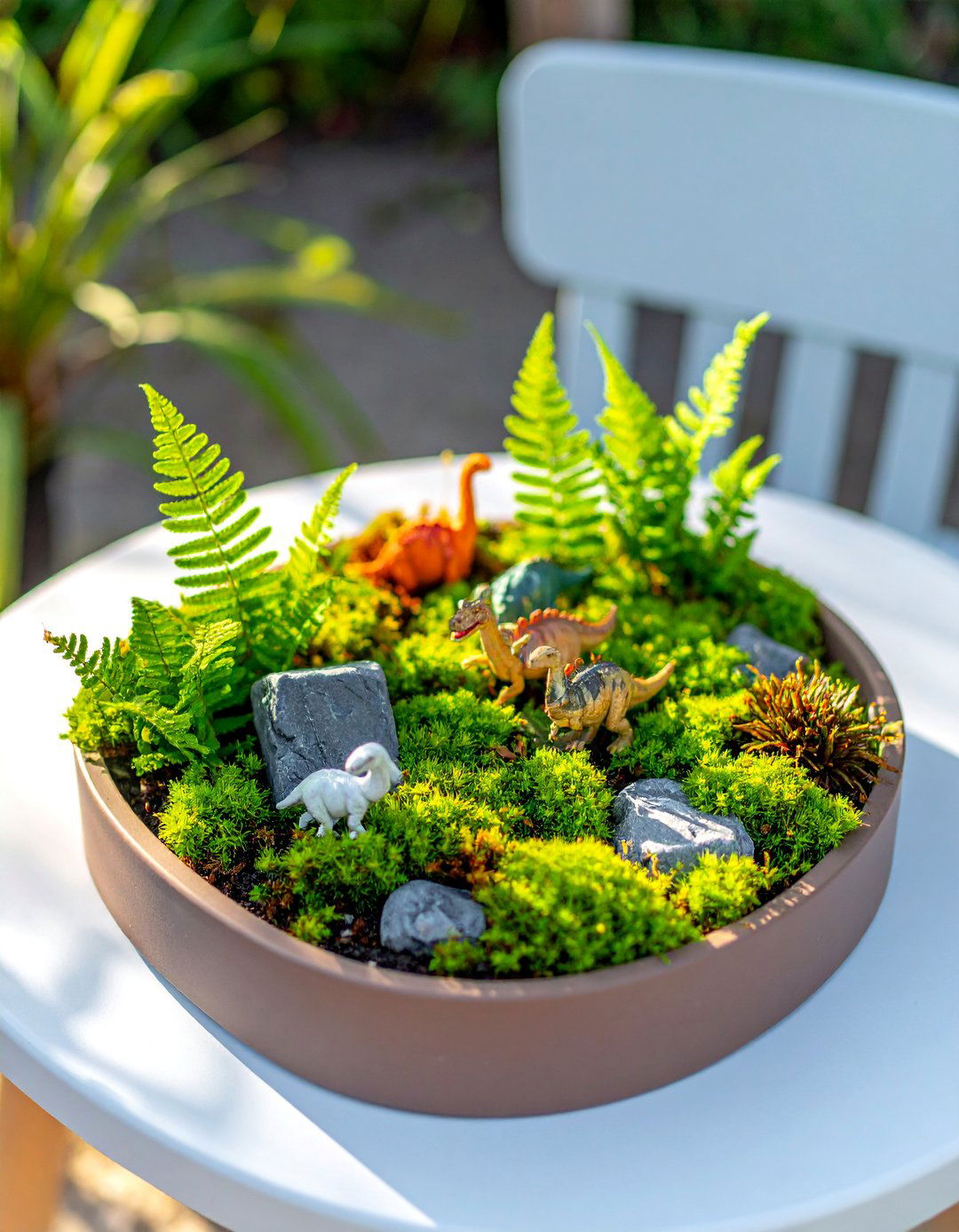
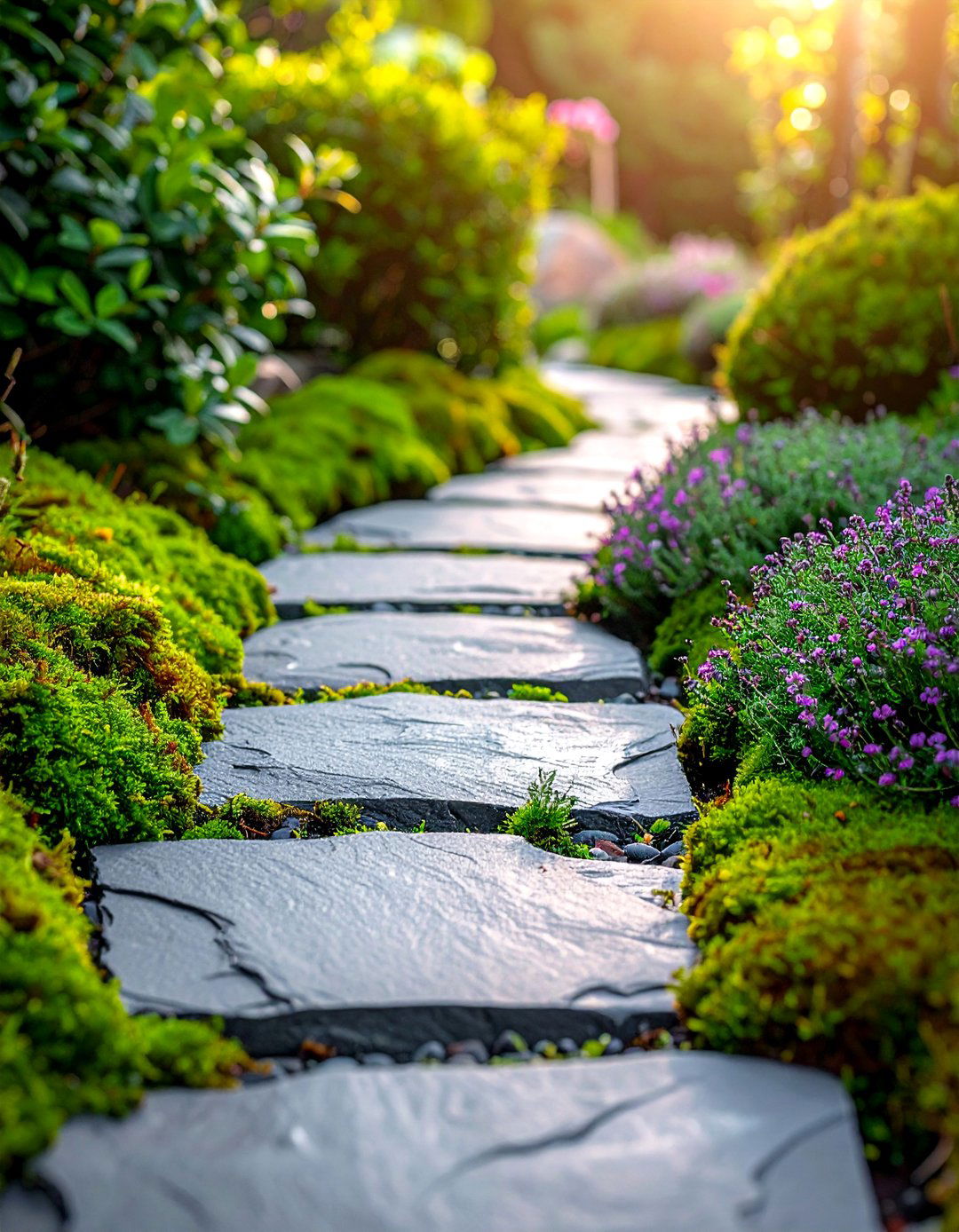
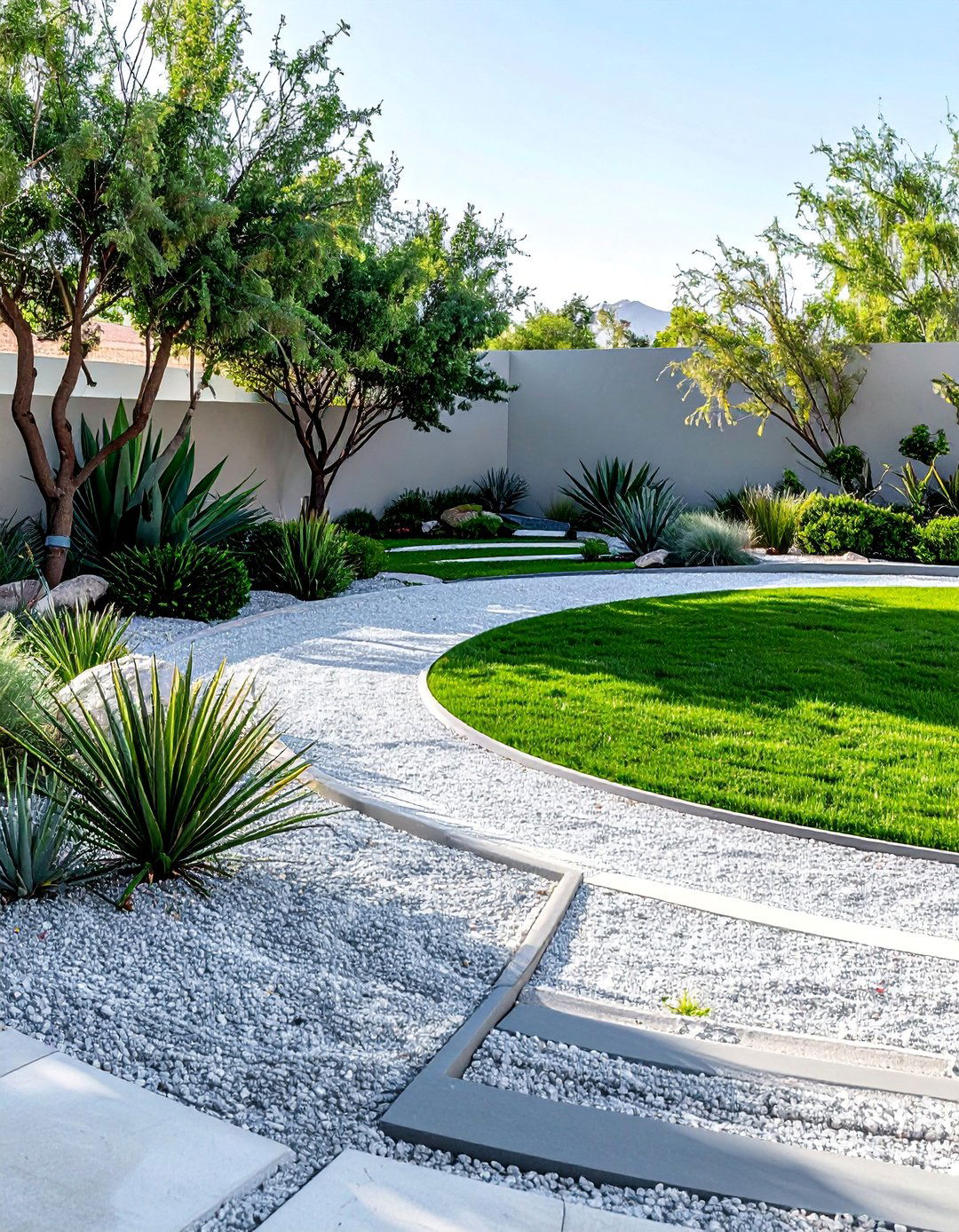

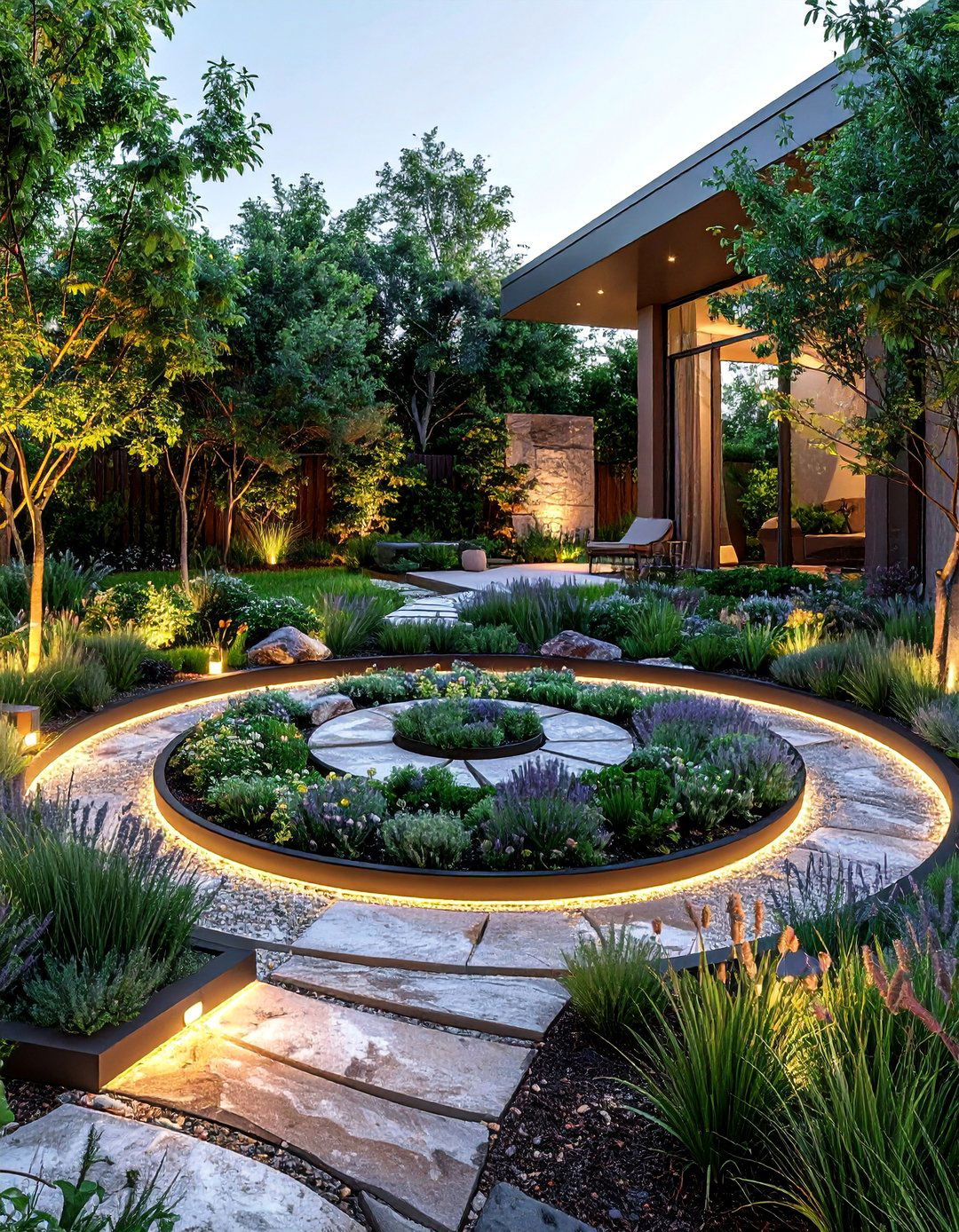
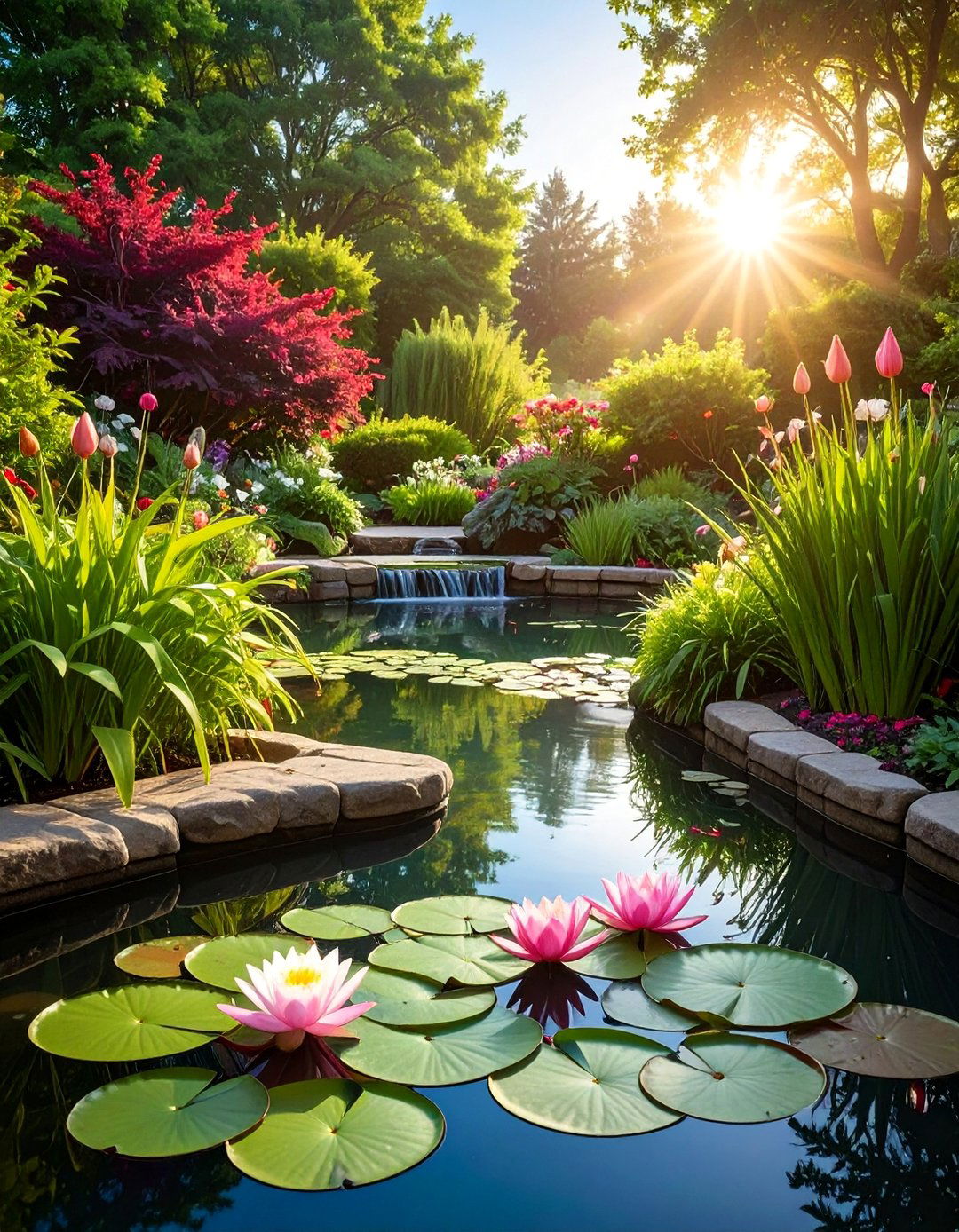


Leave a Reply